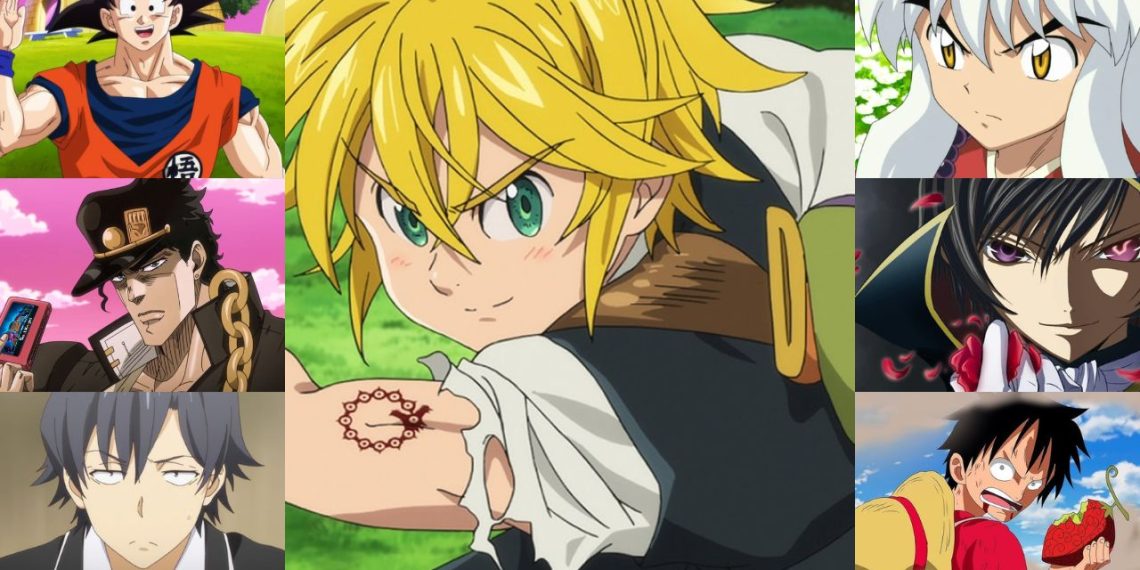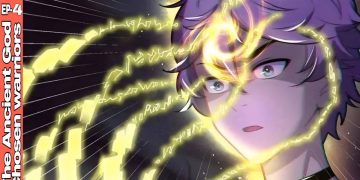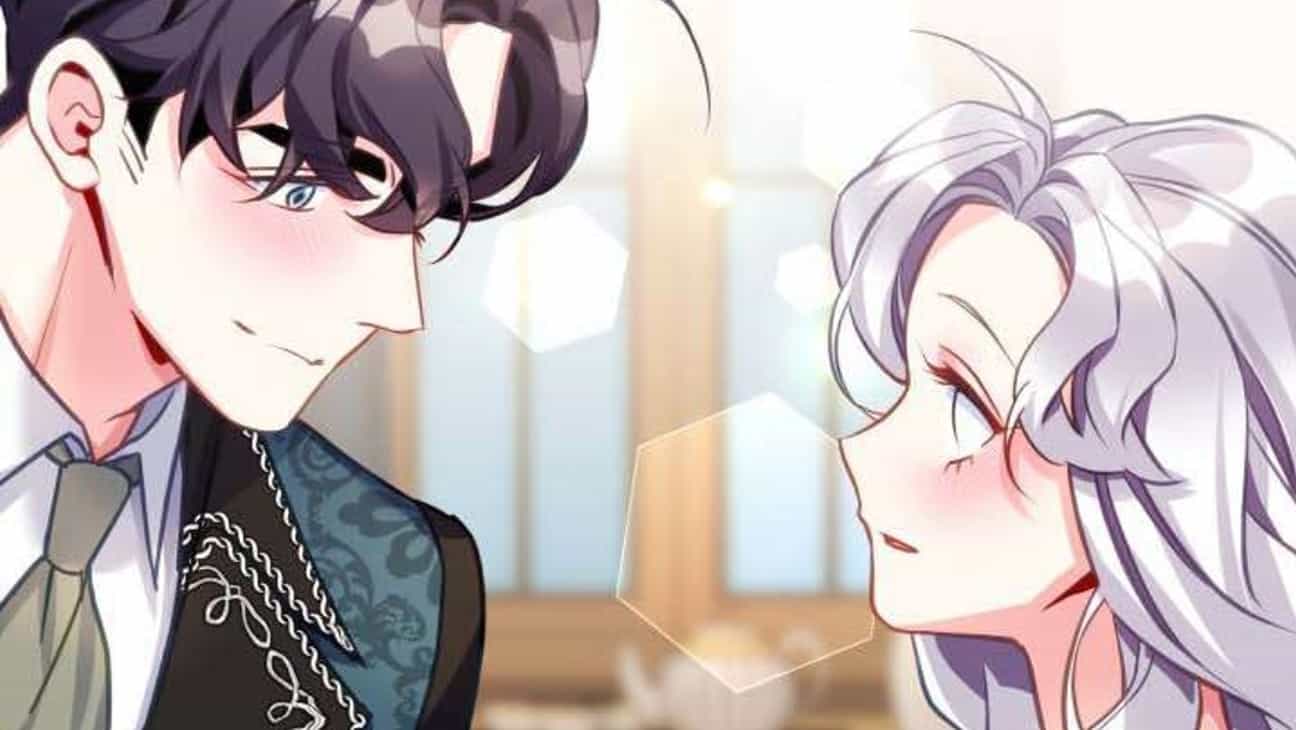Anime has introduced countless iconic protagonists who have left a lasting impression on audiences.
These characters often serve as the heart of their series, guiding the story and connecting emotionally with viewers.
However, being well-known doesn’t always mean they’re flawless. Over time, some beloved leads have shown weaknesses when examined more deeply, revealing a lack of meaningful growth or complexity beneath their fame.
Sauce and Honorable Mentions Near The End
A great protagonist stands out when they offer a balance of personality, development, and emotional depth.
They should evolve throughout their journey, facing challenges that shape them into more layered and relatable individuals.
Yet, many famous anime characters fall into predictable patterns, relying on familiar tropes instead of showcasing unique qualities.
This can leave their arcs feeling stagnant and repetitive, diminishing their impact over time.
One issue with some popular leads is their over-reliance on their series’ success rather than their own strengths.
These characters might shine because of the world-building, side characters, or plot, but on their own, they may lack the depth or emotional resonance needed to truly stand out.
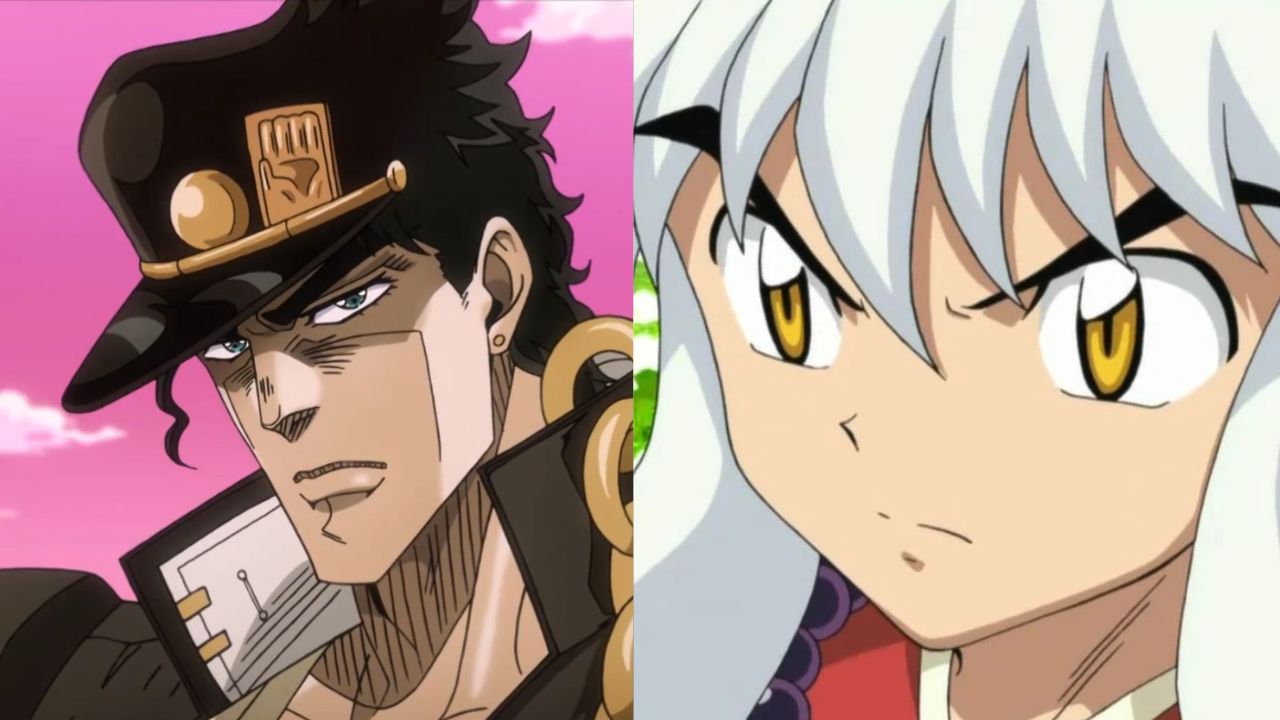
When separated from the grand story, their weaknesses become more noticeable, making their popularity seem more tied to the anime than their personal merits.
Another common flaw is the absence of real stakes or consequences in their stories. Many protagonists breeze through conflicts without genuine struggles or risks, making their journeys feel hollow.
Without meaningful growth or challenges, these characters often fail to resonate with modern audiences who seek complexity and realism in storytelling.
This can lead to their appeal fading as viewers’ tastes evolve. Modern sensibilities have also highlighted flaws in older protagonists.
What might have been charming or relatable in the past can now feel outdated or even problematic.
Characters who rely on dated stereotypes or one-dimensional traits struggle to hold up against the more nuanced leads of contemporary anime, making them seem less relevant in today’s context.
While some anime protagonists remain timeless, others fail to live up to the weight of their fame.
Their reliance on tropes, lack of growth, and diminishing relevance over time highlight the importance of crafting well-rounded characters who can stand the test of time.
The best leads are those who can evolve alongside their stories, offering depth and complexity that continue to amaze audiences for generations.
1) Attack on Titan Raises a Controversial Protagonist Eren Yeager
Eren Yeager is often regarded as one of the most intricate characters in anime, but his status as one of the greatest protagonists is frequently overstated.
Attack on Titan is a well-crafted story that features strong character development, and Eren’s journey plays a central role.
However, his transformation from an idealistic boy to a morally conflicted figure doesn’t resonate as deeply as many fans suggest.
Eren’s evolution is essential to the series’ plot, but it also makes him harder to relate to and, at times, unlikable. His growing disillusionment with the world around him, while significant, distances him from the audience.
As he becomes more consumed by his beliefs, his actions start to feel less justified, making it harder to sympathize with him.
Though his character becomes more complex as the story progresses, fans often mistake this complexity for greatness.
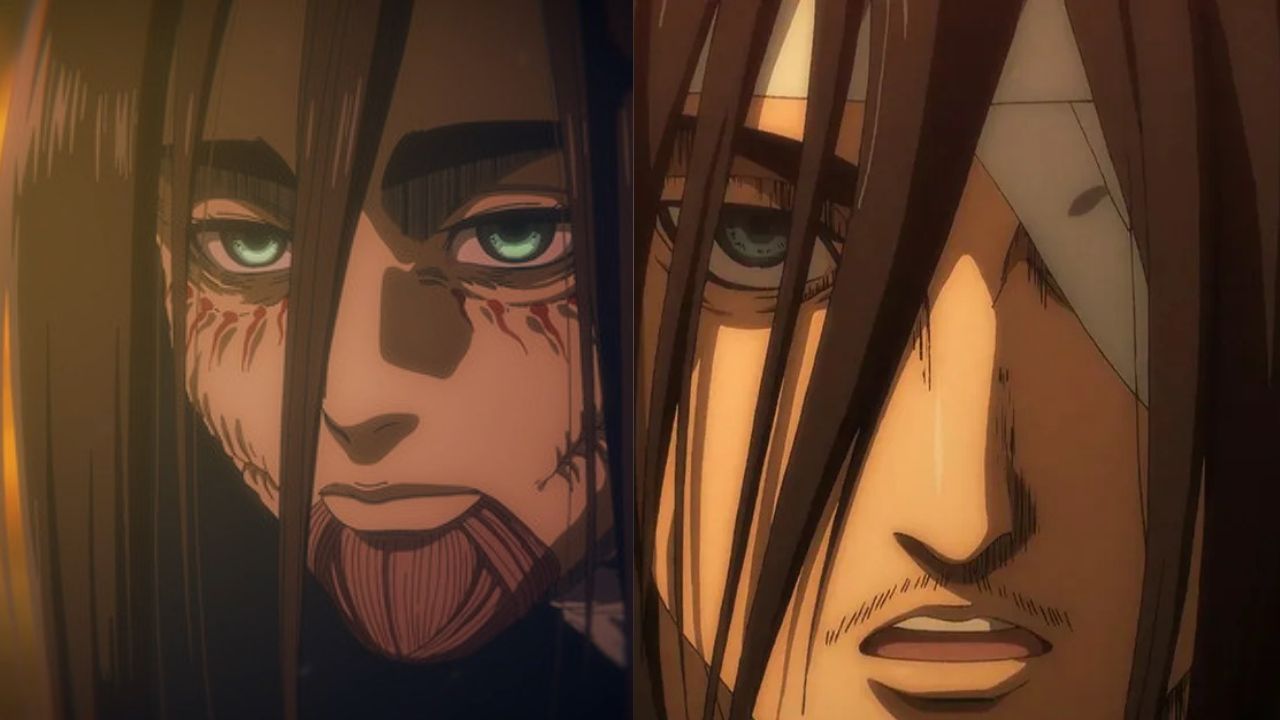
His emotional journey is powerful, but it also reveals his flaws, including selfishness and a disregard for the consequences of his choices.
These traits make it difficult to view Eren as a flawless hero, as some fans tend to do.
One of the most controversial aspects of Eren’s character is his role in the Rumbling. By deciding to destroy 80% of humanity, Eren’s actions lead to catastrophic consequences that are often downplayed or defended by supporters.
This act of mass destruction contradicts the ideals he once held, and the justification for his choices often feels forced or overly simplistic.
While Eren is undoubtedly a symbol of resistance, his actions frequently make him seem less like a hero and more like a flawed, tragic figure.
His growing power and determination to reshape the world come at a great cost, and while Attack on Titan excels at portraying these themes, Eren’s role in them is not as heroic as some fans make it out to be.
Eren’s fame and status as a standout protagonist owe much more to the brilliance of Attack on Titan than to his individual merits.
His journey, while impactful, is overshadowed by the larger themes of the series, and his moral ambiguity complicates his legacy as a true hero.
Despite his importance to the story, Eren’s actions and personality often leave him as a less admirable figure than many fans would like to admit.
2) Asta’s One-Dimensional Journey in Black Clover
Asta, the main character of Black Clover, is an inspiring and hardworking protagonist, but his popularity can sometimes feel exaggerated.
His determination and refusal to give up are central to his character, making him a classic underdog hero in the shonen genre.
However, his portrayal has its shortcomings, particularly in how repetitive his journey becomes.
One of Asta’s defining traits is his relentless energy and loud personality. While this enthusiasm sets him apart and motivates those around him, it can also come across as overbearing.
His shouting and constant declarations about becoming the Wizard King may inspire some fans but annoy others, as it often overshadows the more nuanced parts of his character.
Asta’s strength lies in his anti-magic abilities, which allow him to stand out in a world where magical power is everything.
While this concept is unique, the way his powers are utilized often feels predictable. Most of his battles boil down to sheer willpower and physical strength, with few moments of true strategy or unpredictability.
This repetitive formula can make his victories feel less rewarding over time. Unlike other shōnen protagonists who grow through emotional struggles or face complex moral dilemmas, Asta’s development often feels one-dimensional.
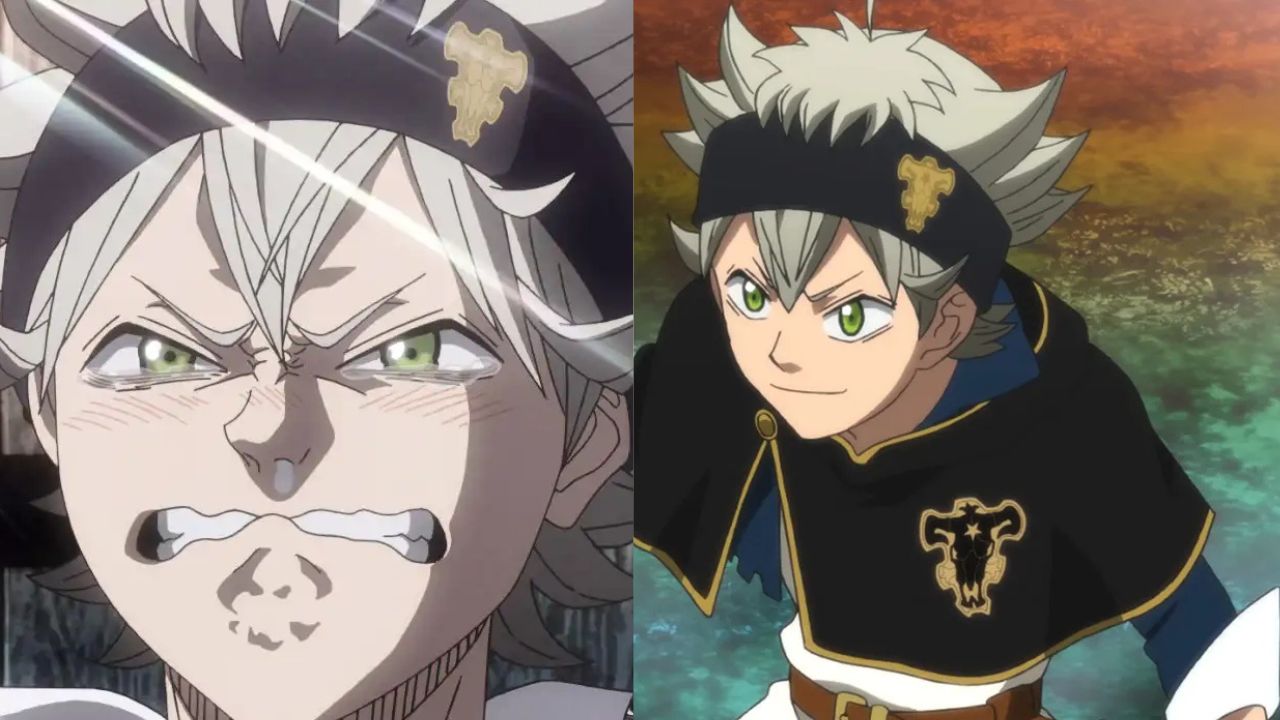
His unwavering optimism and lack of internal conflict leave little room for significant character growth.
While his determination is admirable, it doesn’t evolve much, which can make him seem static compared to more layered protagonists.
The supporting cast in Black Clover often feels more dynamic and engaging than Asta himself.
Characters like Yuno, Noelle, and Captain Yami face personal struggles and undergo notable growth, creating a richer story around Asta.
In many cases, their stories carry more emotional weight, while Asta’s journey remains relatively straightforward.
Despite his flaws, Asta’s energy and dedication make him an enjoyable character for many fans. However, his predictable battles, repetitive character traits, and limited development prevent him from being a truly standout protagonist.
While he embodies the spirit of a classic shōnen hero, this same adherence to genre tropes is what makes him feel overrated to some viewers.
3) Light Yagami’s Arrogance Undermines His Brilliance
Light Yagami is often praised as a genius in Death Note, but a closer look at his actions reveals that his brilliance is overshadowed by his ego.
While he is presented as a highly intelligent and strategic character, many of his decisions are impulsive and driven by an overwhelming desire to prove his superiority, rather than by careful planning.
At the start of the series, Light is portrayed as a model student with a sharp mind, capable of outsmarting his enemies, especially L.
His academic achievements and his ability to outwit those around him paint a picture of a prodigy. However, as the story progresses, his actions often reflect a lack of true wisdom and foresight.
For example, Light makes several risky choices that do not align with his otherwise methodical personality.
Hacking into his father’s computer, killing a fake L on TV, and even joining the investigation team were all actions that increased his chances of being caught.
These decisions were not necessary to further his goals but were made in a desperate attempt to win against L. His need to prove he is always in control becomes a major flaw.
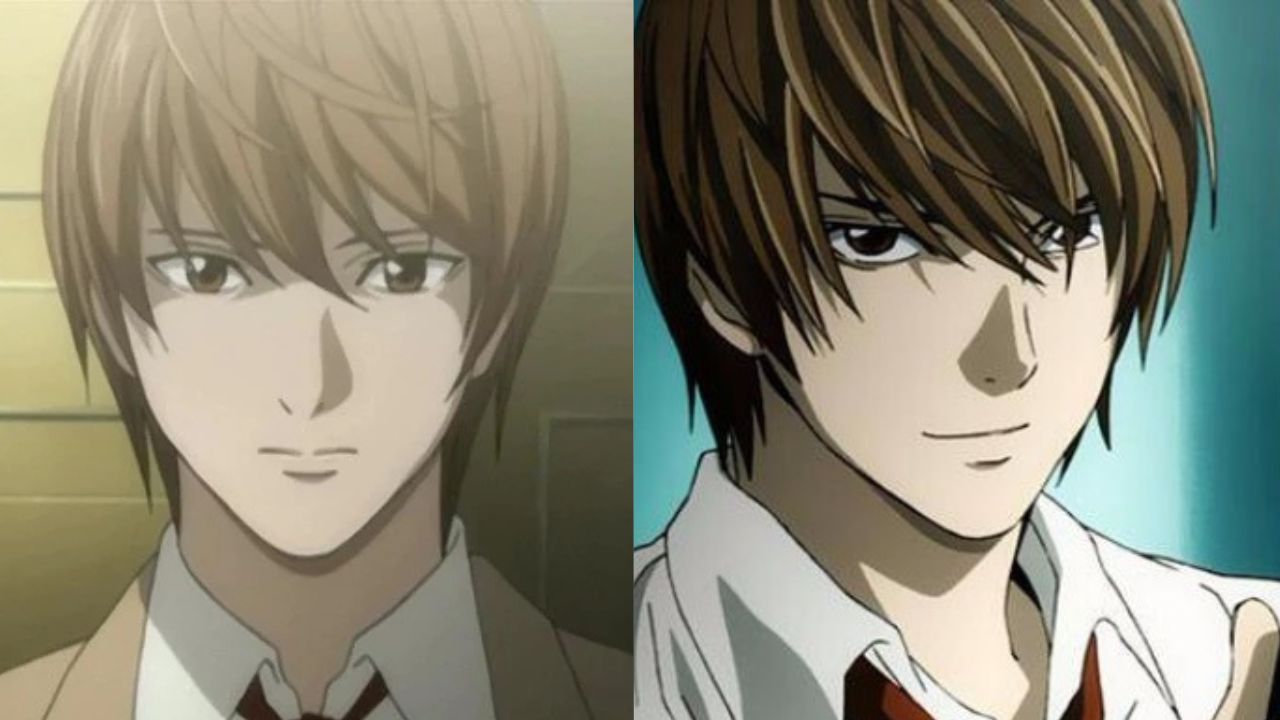
This arrogance ultimately leads to his downfall. Light’s obsessive drive to outsmart everyone around him blinds him to the very weaknesses in his own plans.
His inability to remain humble or to recognize his limitations proves to be his biggest mistake, and as a result, his genius fades into mere ego.
Additionally, the societal views of justice presented in Death Note have evolved over time, making Light’s vigilante actions appear less heroic and more self-serving.
Initially, his actions might have seemed justified in the context of punishing criminals, but as the world changes and ideas of justice shift, his method of punishing criminals by killing them seems increasingly troubling.
In the end, Light Yagami’s character arc reveals a tragic flaw his genius is less about intelligence and more about an inflated sense of self.
His ego-driven decisions and disregard for the consequences of his actions undermine the brilliance that made him such an intriguing character at the beginning of the series.
While he remains a memorable character, his transformation from a promising protagonist to a cautionary tale highlights the dangers of unchecked arrogance.
4) Kirito’s Development When Overpowered Becomes Overrated
Kirito, the main character from Sword Art Online, is a polarizing figure in the anime community, loved by many but also frequently critiqued for certain aspects of his character.
His status as an overpowered hero is a key feature of his personality and plays a significant role in the plot, but it can also diminish the excitement and tension in the story.
As a character who is consistently shown to be stronger than most others, Kirito’s victories often feel too easy, reducing the stakes of the situations he faces.
One notable example of Kirito’s overpowering abilities comes from the Gun Gale Online arc, where he quickly becomes the game’s best player.
This happens despite him using a weapon that is poorly suited for combat, and only after a brief tutorial.
Moments like these make the challenges Kirito faces seem less meaningful because his power level undermines the struggle.
Instead of feeling like hard-earned achievements, his victories seem more like inevitable outcomes, which can take away from the drama of the story.
Despite these issues, there are moments in Sword Art Online, particularly during the Alicization arc, where Kirito shows potential for growth and development.
In this arc, he faces deeper personal challenges and begins to evolve as a character. However, after the events of the War of the Underworld, Kirito’s character seems to regress, returning to his familiar overpowered and somewhat stagnant self.
This lack of lasting development is a key flaw in his character, as it prevents him from undergoing any significant transformation over the course of the series.
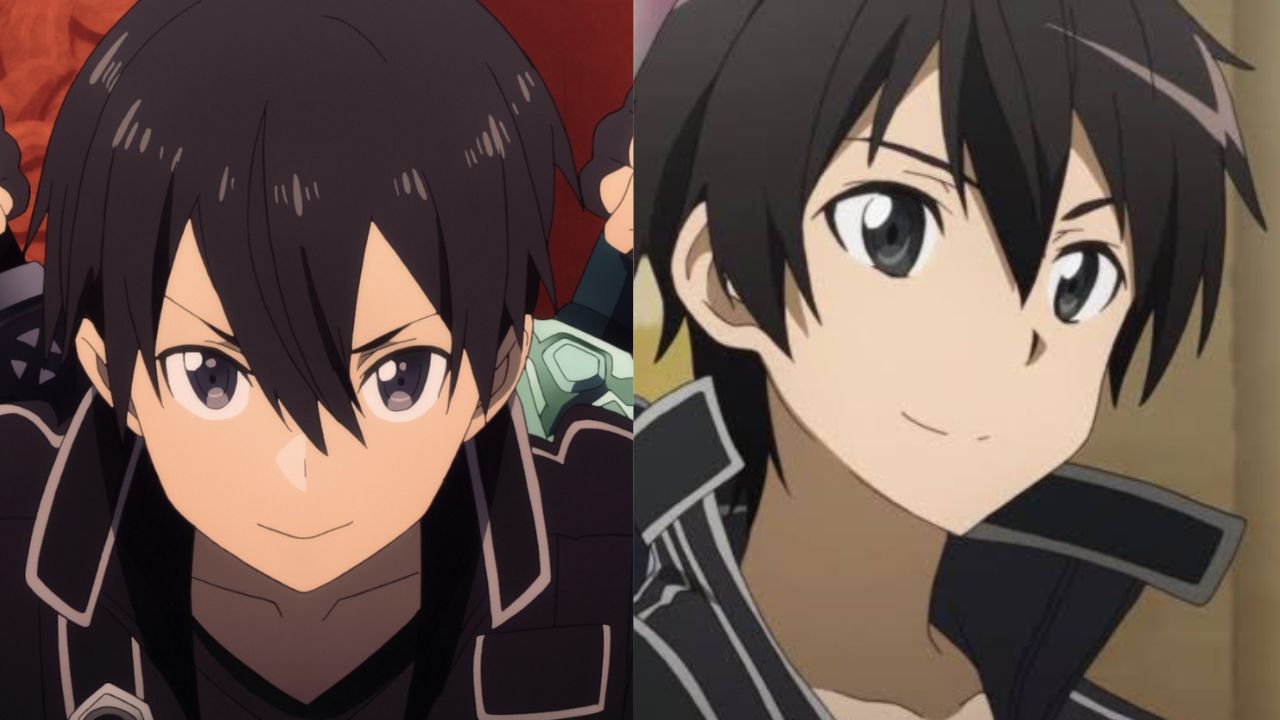
Kirito’s arc remains relatively unchanged despite the various challenges he faces. Unlike other protagonists who go through meaningful personal growth and development, Kirito’s character often feels static.
He does not struggle with his flaws or grow in the same way that many other anime heroes do, which makes his journey less compelling.
His repetitive nature makes it difficult to feel invested in his progression, as viewers are often left wondering if he will ever face true personal or emotional growth.
While Kirito’s popularity is undeniable, his limited evolution and constant overpowering nature contribute to his being seen as one of the most overrated anime heroes.
The appeal of watching a hero overcome great odds is diminished when it feels like the odds are not truly against him.
His constant success without significant setbacks leaves little room for meaningful character exploration or change.
This makes him seem less relatable or interesting compared to other characters who face more complex struggles.
In the end, Kirito’s character is a classic example of a hero who is both loved and criticized for the same reasons.
His overpowered nature and lack of significant development hinder his potential as a truly great protagonist.
While his victories are entertaining, they often feel unearned, and his character arc leaves much to be desired.
Though Kirito remains a fan favorite, the combination of his limited growth and overwhelming power makes him one of the more overrated figures in anime.
5) Saitama Struggles to Grow Beyond the Joke
Saitama, the protagonist of One Punch Man, stands out as one of anime’s most original characters.
His unmatched strength and ability to defeat any enemy with a single punch set the stage for a hilarious parody of typical shonen tropes.
However, despite his popularity, Saitama’s role as a fan favorite can feel exaggerated when his character is more closely examined.
While his invincibility is central to the anime’s humor and premise, it also limits his development as a lead character.
Unlike most shonen heroes who grow stronger through battles and challenges, Saitama’s journey isn’t about physical growth.
Instead, his struggles are internal, revolving around his boredom, lack of excitement, and search for a sense of purpose.
These themes make him a refreshing break from traditional protagonists, but they also mean his character remains largely unchanged throughout the story.
Without the typical arcs of growth or struggle, he risks feeling less engaged over time.
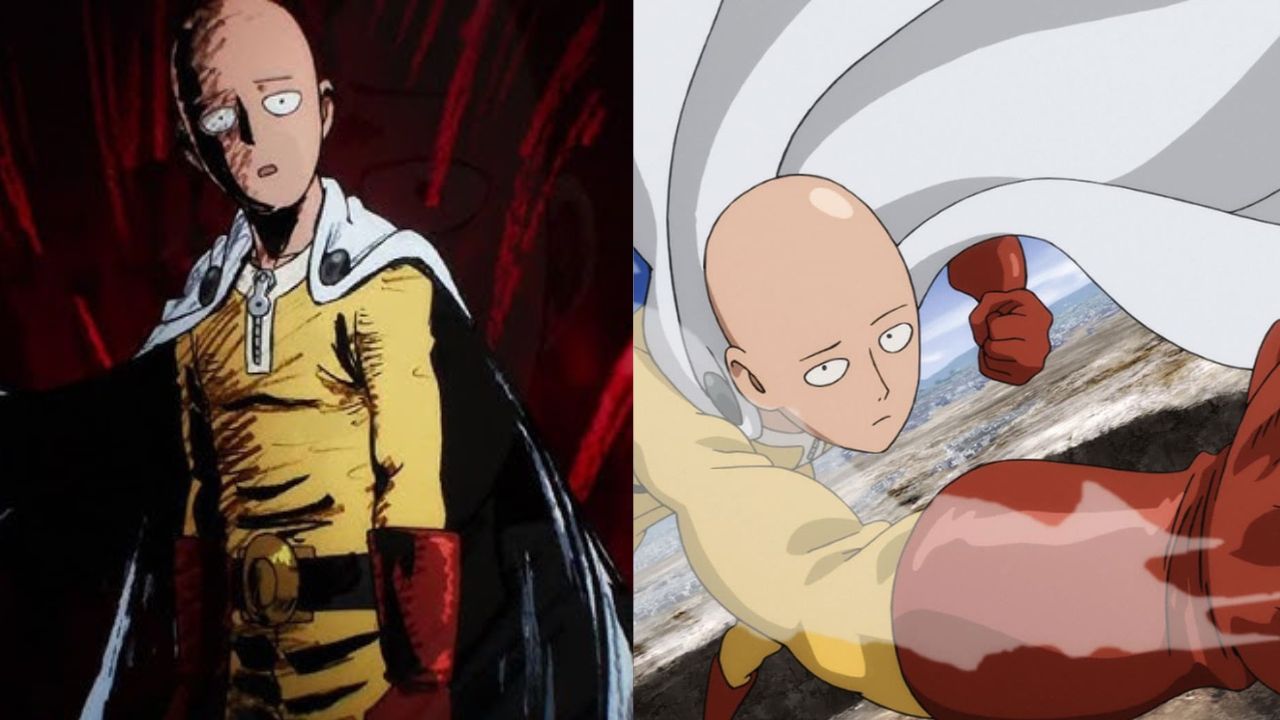
The anime’s progression often relies more on its supporting cast than on Saitama himself. Characters like Genos, who constantly strives to improve, or the Hero Association, with its many conflicts and politics, drive much of the story forward.
Their stories align more with the traditional shonen formula, adding stakes and challenges that Saitama’s overwhelming power simply can’t provide.
As a result, he sometimes feels more like an observer than an active participant in his own story.
Saitama’s static nature, while intentional, can make him feel less dynamic compared to other leads. His unbeatable strength removes the tension from battles and leaves little room for growth.
While this works as part of the anime’s humor and satire, it can also make his character feel one-dimensional at times.
He’s undeniably funny, but his invincibility limits opportunities for deeper development.
That said, Saitama’s charm and comedic value are undeniable. His deadpan reactions, lack of interest in heroics, and simple personality make him entertaining and relatable in unexpected ways.
These traits have earned him a dedicated fanbase, but his appeal largely hinges on the anime’s clever writing and the characters around him rather than his own evolution.
In the end, while Saitama is a standout character for his humor and originality, his lack of growth and the absence of meaningful challenges make him feel overrated as a protagonist.
He’s an excellent comedic tool and a symbol of the anime’s theme, but compared to more dynamic leads, his impact feels limited. His strength, both a strength and a flaw, ultimately defines him as much as it restricts him.
6) The Struggles of Deku a Predictable Hero in My Hero Academia
Izuku Midoriya, or Deku, from My Hero Academia, follows the classic zero-to-hero journey that’s a staple of shonen anime.
His story of starting as a powerless boy and working tirelessly to become a top hero is inspiring, but it doesn’t break new ground.
While there’s nothing wrong with this familiar story, Deku’s development often feels predictable, sticking closely to a formula that lacks the unique twists seen in other standout protagonists.
Deku’s journey centers on mastering the immense power he inherits from All Might. While this process shows his determination and hard work, it doesn’t offer much in terms of surprises or complexity.
His growth, while steady, follows a straightforward path, which can make his character feel less dynamic compared to others in the series.
Without significant challenges to his personality or perspective, Deku risks becoming too predictable as the story unfolds.
What makes Deku’s shortcomings more noticeable is the strength of My Hero Academia’s supporting characters.
Figures like Bakugo and Todoroki showcase deeper internal struggles and more complex growth, often stealing the spotlight.
Their stories of overcoming personal flaws and hardships bring emotional depth that Deku’s straightforward arc struggles to match. This contrast can leave him feeling overshadowed, even though he’s the main character.
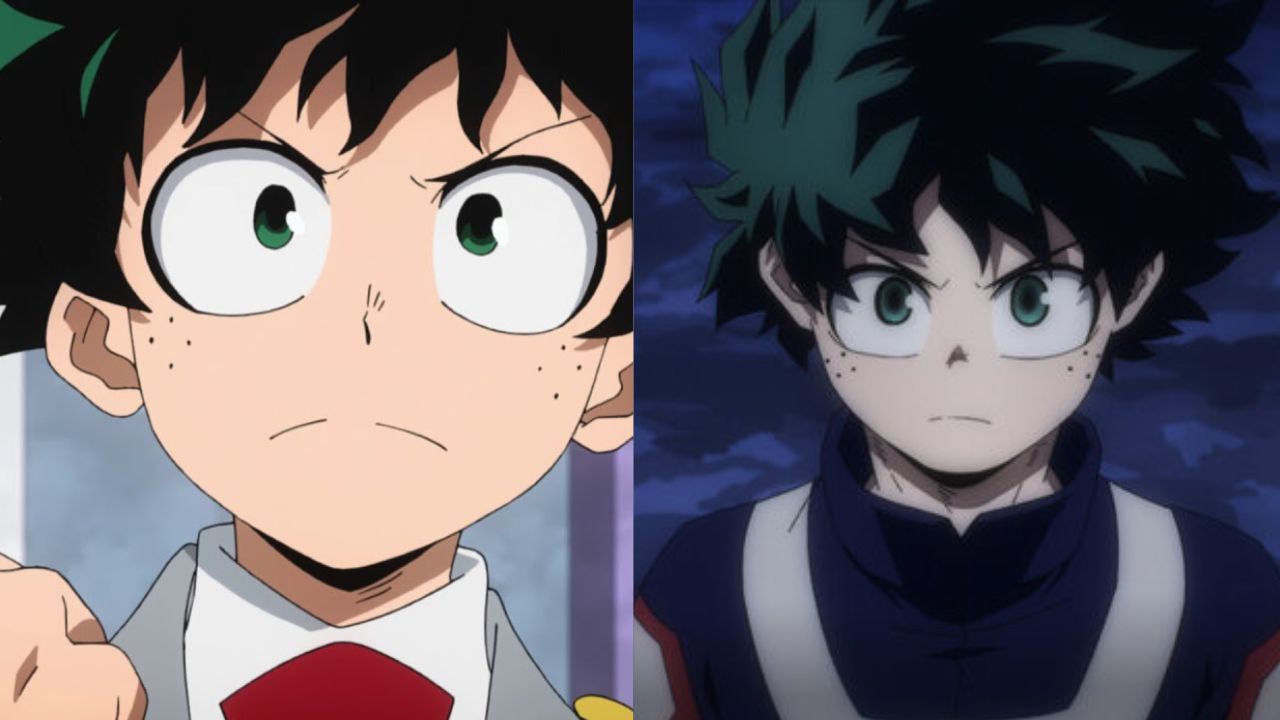
Another challenge with Deku’s character is the repetition of his emotional earnestness.
While his dedication and compassion are admirable, these traits are heavily emphasized throughout the series, sometimes to the point of becoming overly familiar.
Without significant changes or challenges to his core personality, his development risks feeling stagnant over time, making him less engaged as a leader.
Despite these limitations, Deku’s role as a symbol of perseverance and hope has earned him a loyal fanbase.
His story resonates with many viewers who admire his resilience and determination. However, his impact as a main character relies heavily on the broader world of My Hero Academia and the rich cast of characters around him rather than his individual growth.
In the end, while Deku is a likable and relatable protagonist, he may not stand out as one of anime’s most memorable leads.
His predictable arc and the stronger presence of supporting characters highlight his limitations. Over time, his appeal might fade when compared to more dynamic and complex main characters in the shonen genre.
7) Naruto’s Epic Rise Diluted the Struggles That Made Him Great
Naruto Uzumaki is undoubtedly one of the most recognizable figures in anime, celebrated for his determination and drive to become the Hokage of his village.
His journey, starting as an underdog with big dreams and a lot of struggles, resonated with fans who admired his resilience.
Early in the series, his vulnerability and constant drive to prove himself made him a compelling character, someone audiences could easily root for.
However, as the series progressed, Naruto’s growth began to shift away from the relatable struggles of his youth. His increasing strength, amplified by new abilities and power-ups, gradually took center stage.
As a result, the original charm of his underdog story started to fade. Instead of seeing him grow through hard work and overcoming challenges, viewers began to witness him effortlessly overcome seemingly impossible odds.
With his powers growing exponentially, Naruto’s character became less relatable to the audience.
His rise to god-like abilities and his eventual role in saving the world turned him into more of a superhero figure than the struggling boy he once was.
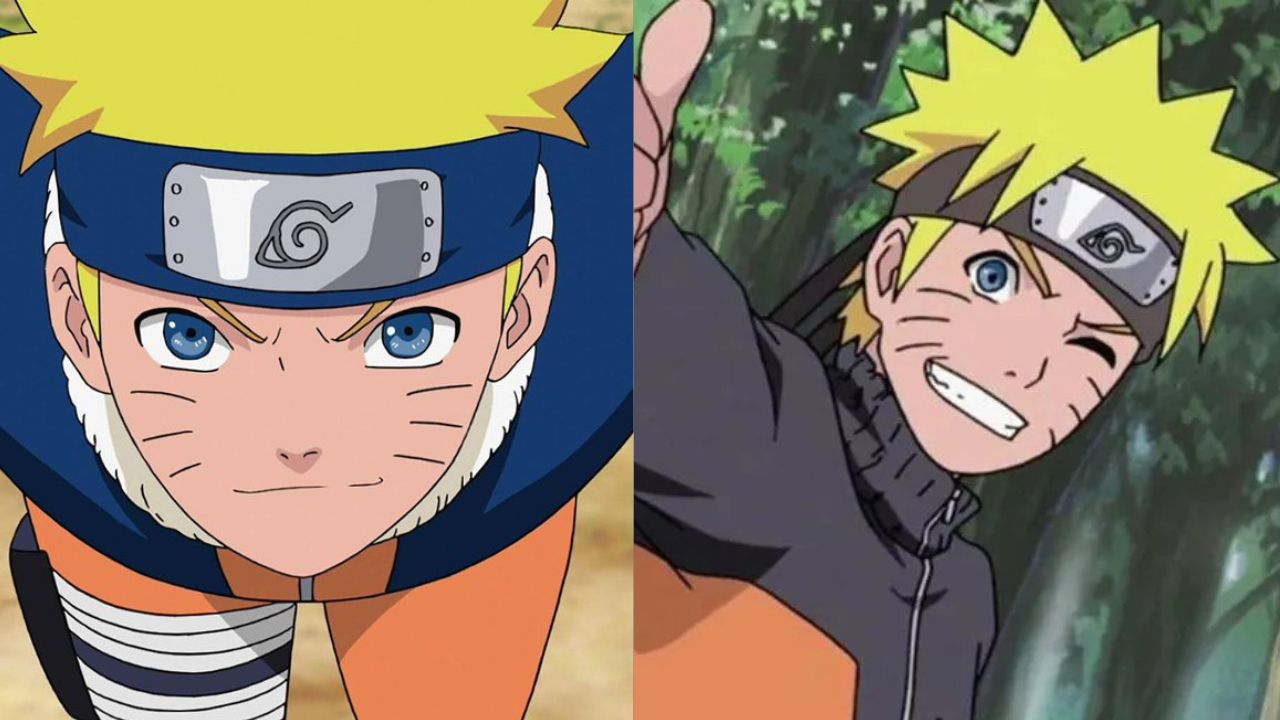
This shift made it harder to connect with him on a personal level, as his struggles seemed less grounded in reality and more in fantasy.
The qualities that initially made Naruto appealing his perseverance and vulnerability became overshadowed by his overpowering abilities.
What made him an inspiring figure was his determination to push through his weaknesses and prove himself, but as his strength grew, these aspects of his character were less emphasized.
The focus shifted to epic battles and world-saving missions, making his personal journey feel less important in comparison.
In a time when anime protagonists are becoming more nuanced and complex, Naruto’s character feels more one-dimensional in retrospect.
His story, while iconic and impactful, doesn’t stand out as much when compared to newer characters who face deeper internal struggles and more subtle development.
Naruto’s story, once groundbreaking, now feels like a product of an earlier era of shonen anime.
Despite these issues, Naruto’s legacy as a source of inspiration for fans is undeniable. He continues to be a symbol of hard work and perseverance, and his story motivated many viewers.
However, in the context of modern anime, his character arc now seems less dynamic and more predictable.
Naruto’s rise to power and the eventual resolution of his story, though satisfying to many, highlight how the progression of his character ultimately overshadowed the qualities that originally made him stand out.
8) Examining Luffy’s Overshadowed Growth in One Piece
Luffy from One Piece is one of the most recognizable and beloved anime protagonists, but his status as an iconic hero can sometimes feel exaggerated.
His determination, carefree attitude, and unwavering loyalty to his friends make him a standout character, but these traits often overshadow any deeper character development.
Unlike other protagonists who undergo significant growth through their challenges, Luffy’s journey frequently feels stagnant.
His resolve and abilities are impressive, but his tendency to solve problems with sheer willpower and determination makes his character arc less dynamic than expected.
One of Luffy’s defining qualities is his unshakable spirit and desire to become the Pirate King, but his journey toward this goal often lacks substantial internal growth.
He continues to face obstacles head-on with the same determination, rarely evolving beyond his initial carefree personality.
While other characters around him grow and develop through their experiences, Luffy’s consistency in his approach can make his character feel predictable, as he often resolves problems by simply refusing to give up.
His power, the Gum-Gum Fruit, is another aspect of Luffy that can sometimes be a double-edged sword.
While his abilities allow him to overcome seemingly insurmountable odds, they also make it difficult for Luffy to face true challenges that could test him emotionally or mentally.
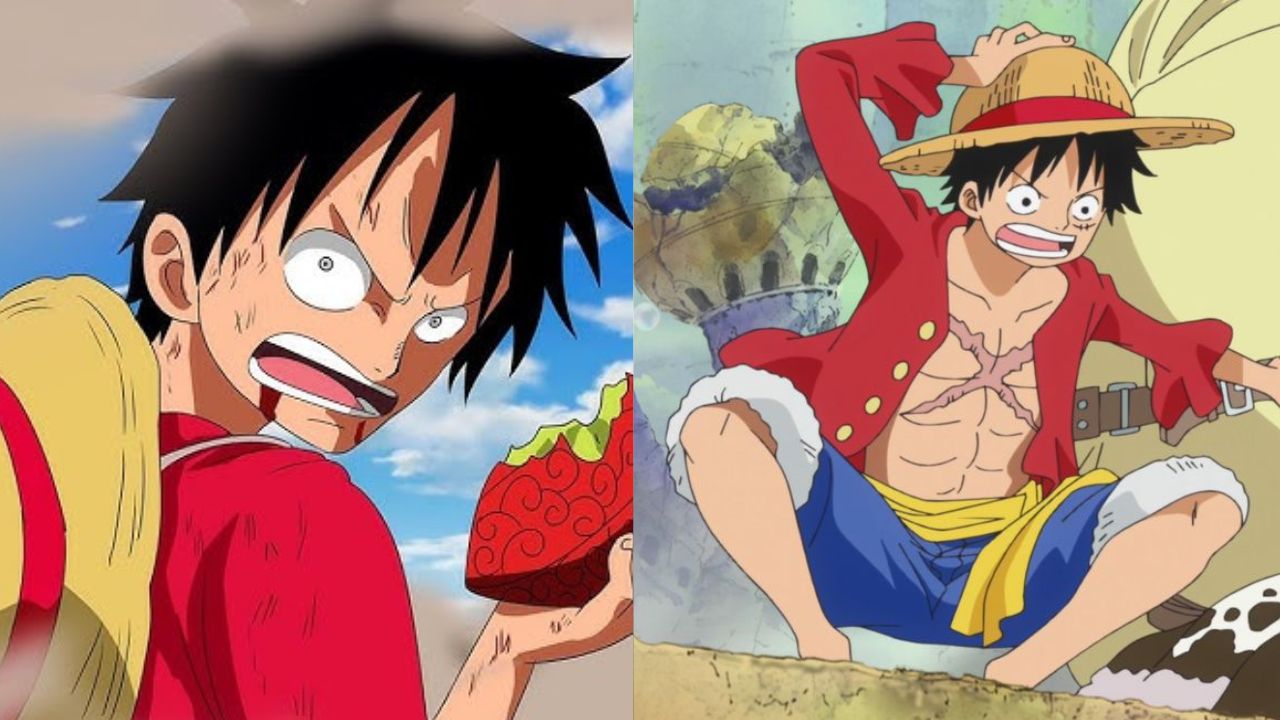
In a world filled with powerful enemies and dramatic battles, Luffy’s overwhelming strength often makes him feel less relatable.
Unlike protagonists who struggle and grow stronger through hardship, Luffy’s power often results in battles being resolved too easily, reducing the stakes of his journey.
Luffy’s role in the series can sometimes feel like that of a “one-man army,” with his friends and allies playing supporting roles in his story.
While his crew is integral to the series, their struggles and growth frequently take a backseat to Luffy’s unstoppable drive.
His adventures are often propelled by his desire to protect those he cares about, but the lack of personal internal conflicts makes Luffy feel more like a plot device than a fully realized character.
His leadership is important, but it can sometimes overshadow the complexities of the other crew members, who have deeper emotional arcs.
Luffy’s relentless pursuit of his goal can make his actions seem repetitive. While his adventures are thrilling and his character undeniably charming, the lack of major setbacks or moments of self-reflection can make his journey feel less impactful.
The lack of substantial change in Luffy’s character from the beginning of the series to now makes him feel less like a protagonist with personal stakes and more like a force of nature pushing the story forward.
This lack of deeper emotional complexity makes it harder for some viewers to connect with him on a more personal level.
In the end, while Luffy remains a beloved and iconic figure in anime, his unyielding nature and unchanging personality sometimes make his character feel overrated.
His journey may be filled with excitement and adventure, but his lack of meaningful personal growth and reliance on sheer determination and power can make him feel less dynamic compared to other, more introspective protagonists.
While he’s undoubtedly a hero, his simplicity and consistency can limit his depth, making him a somewhat one-dimensional figure in an otherwise rich and diverse world.
9) The Limitations of Lelouch Lamperouge
Lelouch Lamperouge is often hailed as one of anime’s most brilliant characters, admired for his intelligence and strategic prowess.
Fans frequently praise his ability to manipulate others and devise complex plans that drive the plot of Code Geass.
However, when closely examined, his status as a genius can feel overstated. While the anime presents him as a mastermind, the execution of his strategies often depends on situations that seem unrealistic or forced.
These contrived plots suggest that his victories are more a result of convenient plot twists than genuine intellectual brilliance.
The complexity of Lelouch’s character is another point of contention. Though the anime provides a compelling mix of high-stakes drama and moral dilemmas, Lelouch himself remains relatively unchanged throughout the series.
After gaining his Geass in the very first episode, his transformation is immediate, but after that, his motivations and personality stay largely consistent.
Unlike other protagonists who evolve and face internal conflicts, Lelouch’s journey lacks significant development, making his story feel static.
Lelouch’s inability to grow as a character limits the emotional depth of his story. As the anime progresses, viewers are exposed to his struggles and moral decisions, yet these experiences rarely result in meaningful personal change.
Instead of confronting his flaws or grappling with deeper questions about his choices, Lelouch continues on the same path, largely unaltered by the events around him.
This lack of growth diminishes the impact of his journey and makes it harder for audiences to connect with him on a deeper level.
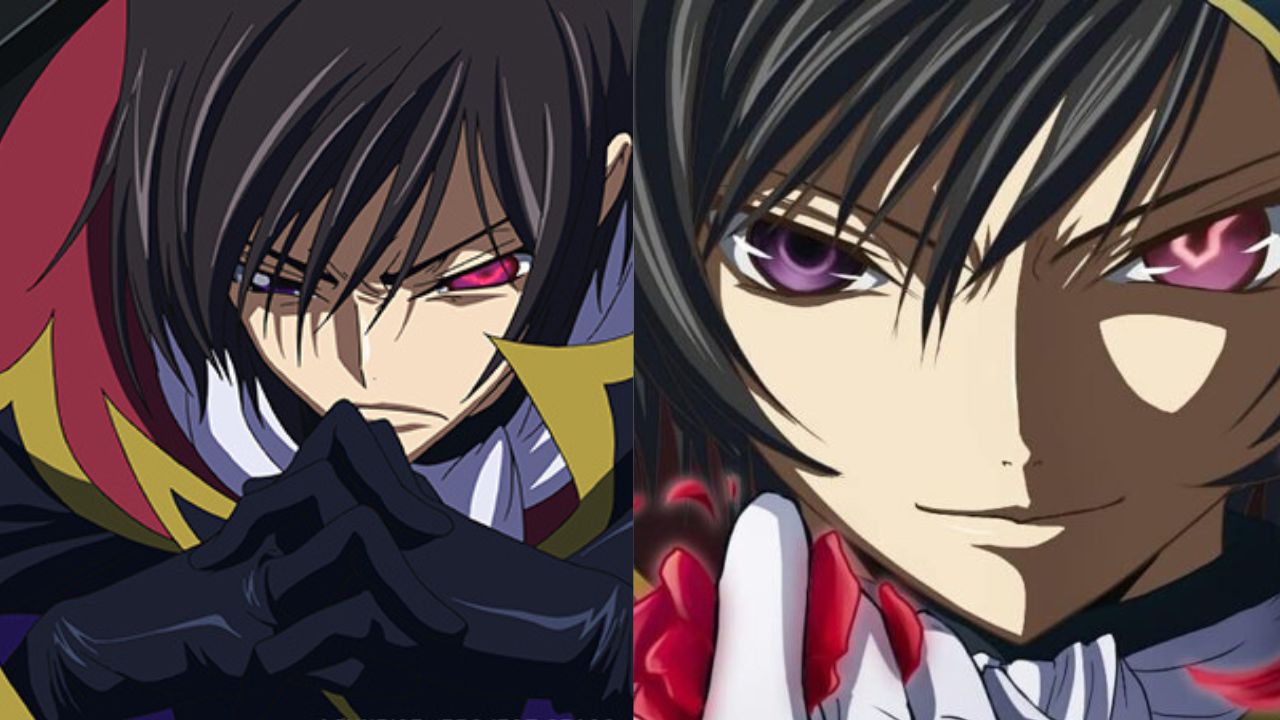
In contrast to other characters in Code Geass, who undergo personal transformations, Lelouch’s arc feels almost predetermined.
His actions, while dramatic and often morally ambiguous, don’t lead to significant revelations about his character or his beliefs.
The lack of evolution makes it difficult to view him as a truly complex figure, as his motivations remain fairly straightforward despite the chaos surrounding him.
The anime’s emphasis on moral conflicts and large-scale battles also works against Lelouch’s character development.
Instead of focusing on his inner growth, the series often shifts to grand schemes and high-stakes confrontations. While these elements are thrilling, they overshadow any deeper exploration of Lelouch as a person.
This lack of balance between his external conflicts and internal struggles weakens the story.
Ultimately, while Lelouch Lamperouge remains a popular and iconic character, his journey falls short of the deeper, more nuanced arcs seen in other protagonists.
His strategic brilliance, though entertaining, feels less impressive when weighed against the lack of personal growth.
For all the drama and spectacle surrounding his actions, Lelouch’s lack of meaningful development makes his story less compelling and limits his lasting impact as a character.
10) Ichigo Kurosaki’s Journey Falls Short of True Character Development
Ichigo Kurosaki from Bleach is often regarded as one of the iconic anime protagonists, but his character can feel overrated when examined more closely.
He starts off as an average teenager who suddenly inherits extraordinary abilities, and over the course of the series, he becomes a powerful soul reaper.
However, much like other shōnen leads, Ichigo’s strength grows quickly, often outpacing his character development.
This rapid power increase is a key part of the series, but it also limits the emotional depth of his journey.
At the core of Ichigo’s story is his internal conflict, particularly his desire to protect his loved ones. Yet, his focus on power and constant battles leaves little room for introspection or real growth.
He often faces challenges that, while intense, are solved more through sheer strength than by evolving as a person.
This reliance on power makes his character arc predictable and often repetitive, as the stakes rise, but Ichigo’s fundamental nature doesn’t change much.
One of the issues with Ichigo’s character is that, unlike many other protagonists who struggle with their powers or the responsibility that comes with them, Ichigo rarely faces real, lasting consequences for his actions.
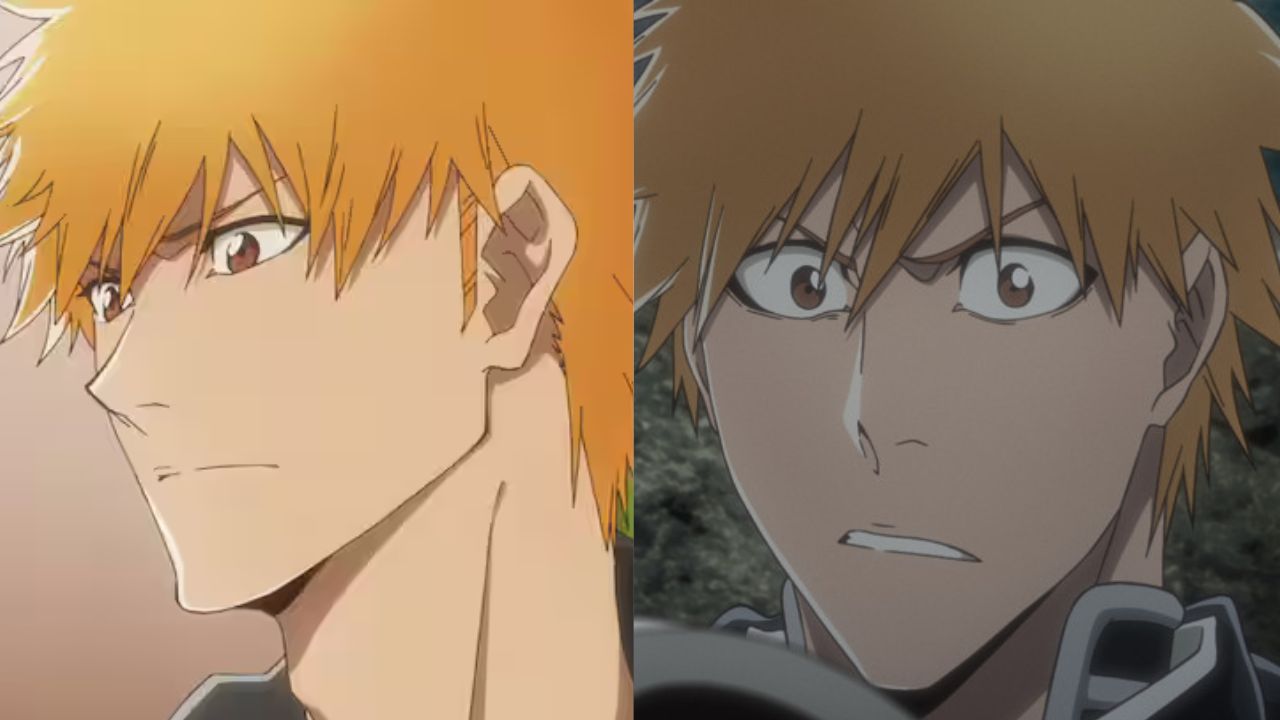
His struggles often revolve around his emotional connections or his need to fight, but there’s little sense of vulnerability or defeat that makes other characters’ arcs more compelling.
Even when Ichigo faces setbacks, it usually doesn’t take long for him to overcome them, making his journey feel less about growth and more about maintaining an ever-expanding list of victories.
While Ichigo’s relationships with his friends and family add some emotional depth, they often feel secondary to the action.
His bond with characters like Rukia, Orihime, and Uryu adds layers to his story, but these relationships tend to be used more as plot devices rather than focusing on his personal evolution.
His interactions with others, though significant, don’t push him to evolve in meaningful ways.
Instead, Ichigo’s role often becomes that of a protector or a powerful figure in the background, with his emotional struggles sidelined for the next big battle.
Another key flaw is the inconsistency in Ichigo’s development throughout the series. His character sometimes shifts abruptly, such as his transitions between different forms of power or his varying attitudes toward the people around him.
These changes often feel disconnected from his previous experiences, leaving his growth feeling more like a plot necessity than a natural progression.
Ichigo can be a heroic and determined figure one moment, and the next, his actions or motivations feel somewhat aimless or unconvincing.
Finally, Ichigo’s overwhelming power and his ability to face down nearly any threat without significant risk diminish the tension of the story.
While this might seem like a typical shōnen trope, it leads to a lack of stakes in his journey. As the series progresses, Ichigo becomes less relatable and more of a perfect hero whose victories come too easily.
This lack of struggle, coupled with his underdeveloped emotional journey, makes Ichigo feel less like a well-rounded protagonist and more like a tool to propel the story forward.
While he’s undeniably a memorable character, his arc doesn’t offer the same depth or emotional resonance as other, more flawed or evolving heroes.
11) Inuyasha Falls Short as an Iconic Protagonist
Inuyasha, the half-demon protagonist of the anime Inuyasha, holds a special place in the hearts of many fans.
However, his reputation as a leading character might not be as deserved as it seems.
While his gruff personality and determination make him memorable, his character development and actions often leave much to be desired.
One of the most notable aspects of Inuyasha’s character is his quest to become stronger, largely driven by his desire to obtain the Shikon Jewel shards and his complicated feelings about his half-demon identity.
Yet, his growth is often overshadowed by his stubbornness and repetitive struggles, which rarely lead to meaningful changes in his personality.
Much of Inuyasha’s arc revolves around his past with Kikyo and his budding relationship with Kagome, yet he frequently fails to resolve his feelings in a mature way.
His indecision between the two women creates unnecessary drama and slows the story’s progress, frustrating viewers who expect more from a protagonist.
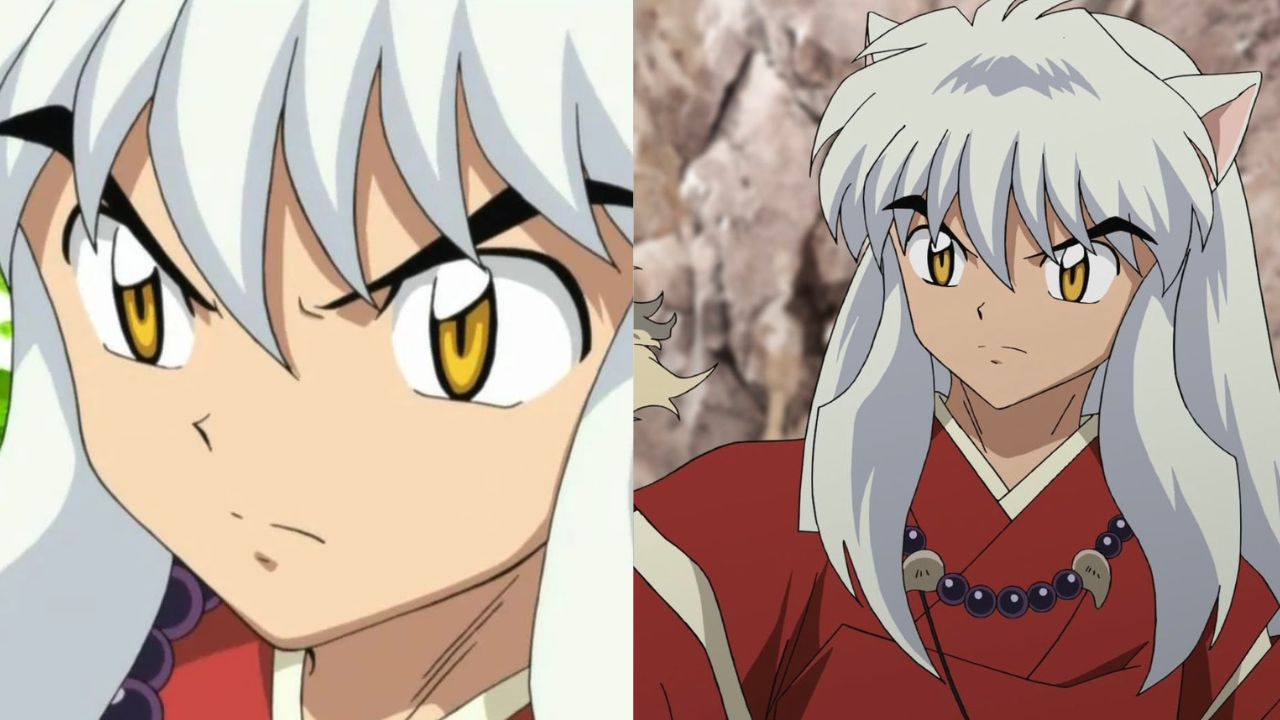
In battles, Inuyasha’s power-ups, such as learning new techniques for his Tessaiga sword, do provide exciting moments.
However, these upgrades often feel formulaic, following predictable cycles of defeat, realization, and eventual victory. This makes his growth feel less earned and more reliant on typical shonen tropes.
The anime’s story momentum often depends on its supporting cast, such as Kagome, Miroku, Sango, and even the villains like Naraku.
These characters often experience deeper emotional growth or contribute more to the overarching story than Inuyasha himself, leaving him feeling stagnant by comparison.
While Inuyasha’s fiery attitude and emotional vulnerability make him relatable at times, his lack of consistent development and reliance on familiar tropes limit his impact as a protagonist.
Though he remains a beloved figure in anime history, his flaws make him feel overrated in the broader context of anime leads.
12) Shinji Ikari The Flawed Hero Who Divides Anime Fans
Shinji Ikari from Neon Genesis Evangelion is a divisive protagonist who has been praised for his emotional depth but is often considered overrated due to his flaws as a lead character.
While the series explores complex themes of identity, trauma, and human connection, Shinji’s role within the story sometimes feels more reactive than proactive, which can make him a frustrating figure for viewers.
Unlike traditional mecha anime heroes who are confident and determined, Shinji is deeply insecure and hesitant.
His reluctance to pilot the EVA and his constant internal struggles reflect the anime’s deeper psychological focus, but they also limit his growth as a protagonist.
Instead of rising to challenges, Shinji often succumbs to fear and self-doubt, leaving much of the heavy lifting in the plot to the supporting cast.
Shinji’s development is deliberately slow, emphasizing his inability to confront his issues head-on.
While this makes him relatable to some, it can also feel repetitive as he cycles through the same emotional struggles without significant change.
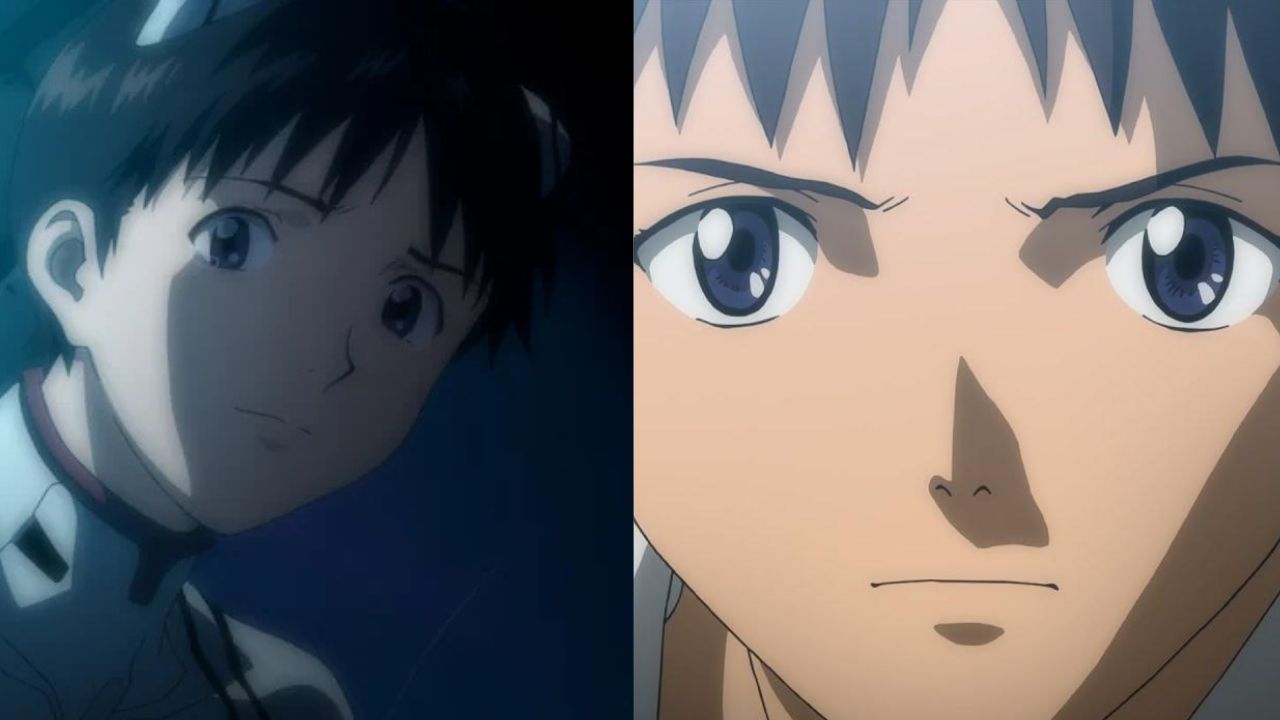
His tendency to run away from responsibility and avoid tough decisions adds to the frustration, making him seem stagnant compared to other characters in the series.
The story’s reliance on Shinji’s internal conflict often shifts the story tone, slowing down the pacing and overshadowing the larger stakes of the plot.
Characters like Misato and Asuka bring energy and complexity to the series, while Shinji’s passivity makes him feel more like a story tool to explore themes rather than a driving force in the story.
Though Shinji’s portrayal as a flawed, realistic character has resonated with many fans, it also highlights his weaknesses as a protagonist.
His lack of agency and emotional growth can make it hard to root for him, especially when he repeatedly avoids meaningful change.
This intentional portrayal is part of what makes Evangelion unique, but it also makes Shinji a less compelling lead for those expecting a more active hero.
In the end, Shinji Ikari is a bold attempt at subverting anime protagonist tropes, but his appeal is highly subjective.
While he embodies the struggles of vulnerability and self-worth in a way few characters do, his constant hesitation and limited growth leave him feeling more like a symbol for the anime’s themes than a truly dynamic or memorable hero.
13) Natsu Struggles to Burn Brighter Among Shonen Icons
Natsu Dragneel, the fiery protagonist of Fairy Tail, was a defining figure in 2010s anime fandoms. However, his immense popularity can feel overstated when viewed alongside other Shonen leads.
While Natsu embodies the traits expected of a hero great strength, loyalty to his friends, and a determination to overcome any challenge he doesn’t do much to stand out in a crowded genre filled with memorable protagonists.
One of Natsu’s biggest shortcomings is his lack of a distinct personality. While many shonen lead audiences with charm, humor, or emotional depth, Natsu’s character feels one-dimensional.
His fiery energy and straightforward approach to problems rarely evolve, leaving little room for growth or complexity.
Over time, his predictable nature can make him less engaging compared to other iconic heroes.
Natsu’s development throughout Fairy Tail is another weak point. Unlike protagonists who undergo significant changes or face internal struggles, Natsu remains largely the same from start to finish.
His unwavering determination and confidence are admirable, but they don’t offer much in terms of a compelling character arc.
This static nature prevents him from reaching the emotional heights that make other shonen leads so memorable.
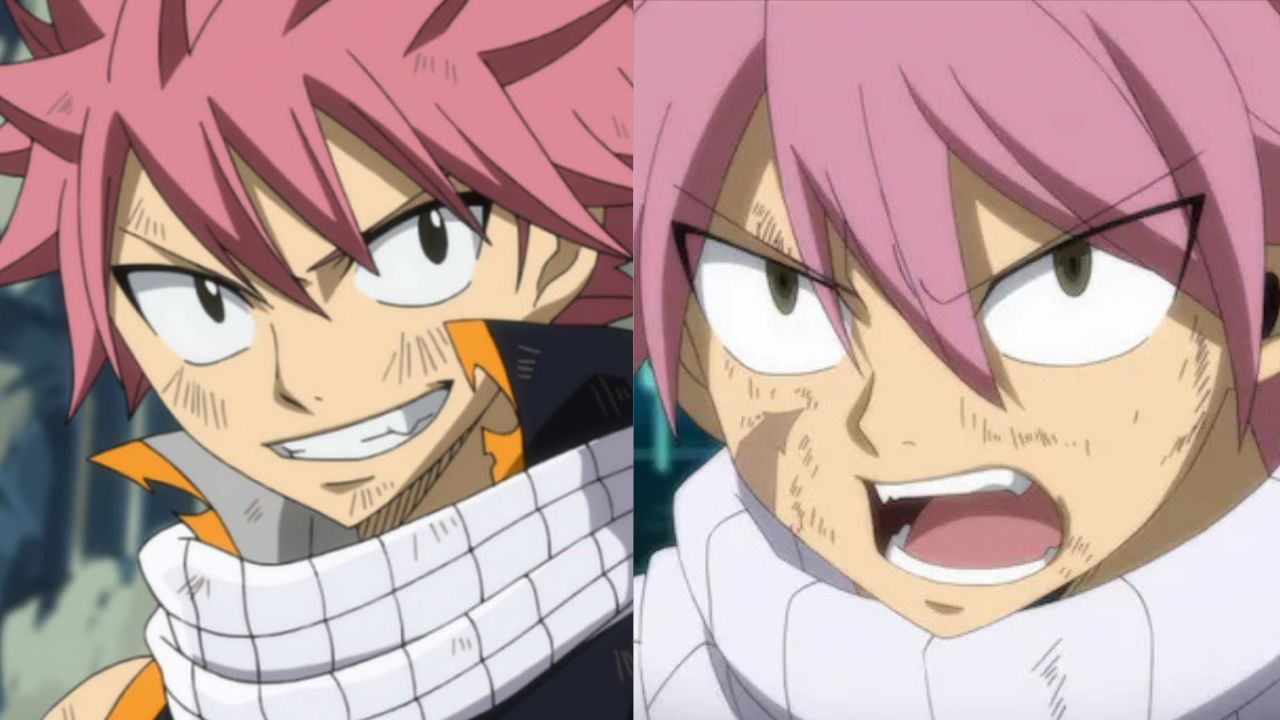
The lack of growth in Natsu’s story also impacts the story. Without meaningful challenges that push him to evolve, his journey feels more repetitive than transformative.
Battles and conflicts are often resolved through raw power or determination, which, while exciting, don’t offer the depth needed to make him truly stand out in the genre.
Despite these flaws, Natsu’s dedication to his friends and his unshakeable optimism has earned him a loyal fanbase.
His role as the heart of Fairy Tail resonates with viewers who value his strong sense of camaraderie and determination.
These qualities align perfectly with the series’ themes of friendship and perseverance, even if they don’t add much complexity to his character.
In the end, while Natsu is a likable and energetic hero, his lack of a transformative journey or unique traits makes him less memorable than other Shonen protagonists.
He fits the mold of a classic Shonen lead but fails to bring anything truly distinctive to the table. Over time, his appeal may fade when compared to more nuanced and dynamic characters in the genre.
14) Kamina’s Boldness Doesn’t Make Him a True Protagonist in Gurren Lagann
Kamina, from Tengen Toppa Gurren Lagann, is a character who is often celebrated for his larger-than-life personality and inspiring speeches.
His boldness and unshakeable confidence make him a memorable figure in anime, and he certainly leaves a lasting impression on fans.
However, despite his popularity, Kamina’s character can be seen as overrated when examined more closely.
His role in the story, while significant, often feels more like a vehicle for others’ growth than a dynamic and evolving protagonist.
At the start of the series, Kamina is presented as the embodiment of limitless determination. His belief that anything is possible and his refusal to back down from challenges are key traits that endear him to fans.
His relationship with Simon, the main protagonist, also plays a vital role in driving the emotional core of the story.
Kamina pushes Simon beyond his limits and inspires him to step into the role of a true leader.
In this sense, Kamina is a powerful motivational force within the series, helping Simon find his strength and purpose.
However, Kamina’s character is somewhat one-dimensional. His traits, while admirable, don’t evolve significantly throughout the series.
He remains largely defined by his bravado, and his constant declaration that You can’t do it without believing doesn’t leave much room for personal growth or deeper exploration.
He embodies the archetype of the fearless leader who thrives on energy and optimism, but these qualities can also make him feel shallow, especially when compared to other characters who go through more complex emotional arcs.
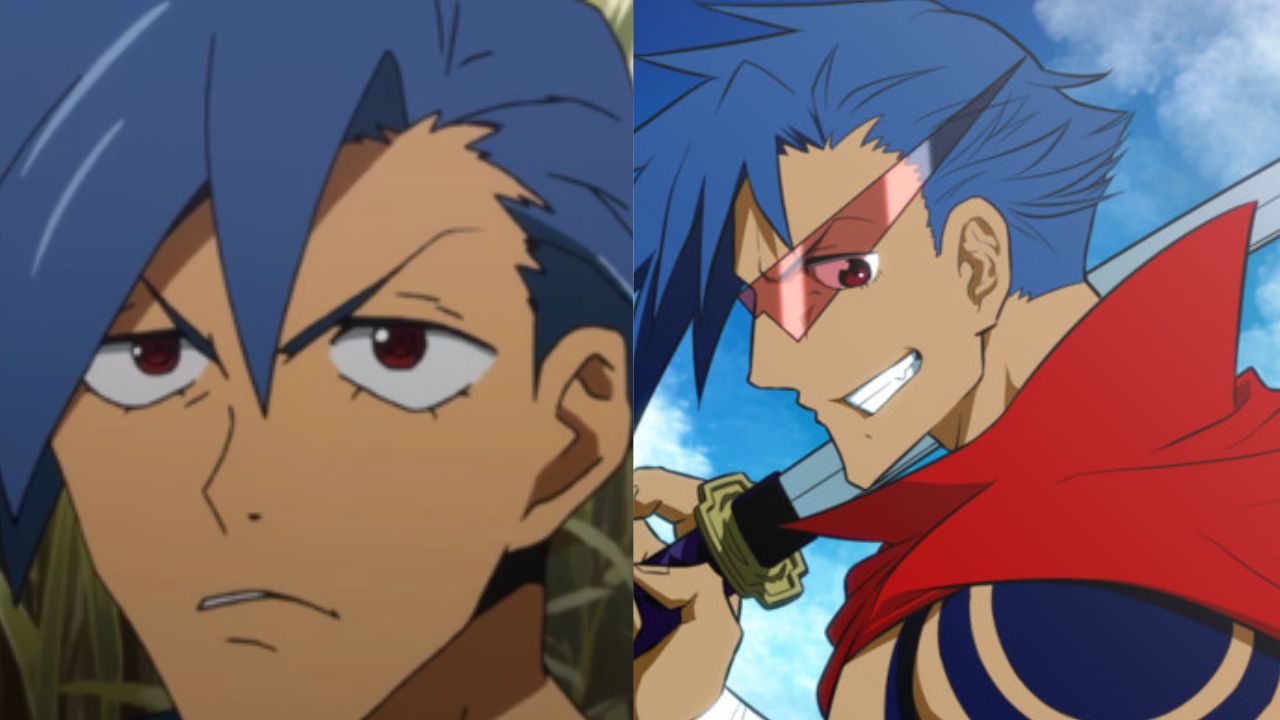
Kamina’s character arc is ultimately cut short, which, while emotionally impactful, highlights the limitations of his role.
His death serves as a catalyst for Simon’s growth, but it also exposes how much of Kamina’s purpose in the story was to push others forward rather than develop as a character himself.
Without Kamina’s forceful presence, Simon faces the weight of leadership on his own.
While this transition is important to Simon’s evolution, it also underscores how Kamina’s lack of depth makes his character less significant in the long run.
Despite the emotional weight his death carries, Kamina’s impact is largely based on his function within the plot rather than his personal growth.
His character is more of an archetype a source of inspiration for others than a well-rounded protagonist.
This can make him feel more like a plot device than a truly fully fleshed-out lead. Kamina’s charm lies in his relentless optimism, but this can only go so far when it isn’t balanced with meaningful personal change.
In the end, Kamina is a character who is easy to love for his boldness and energy, but his lack of development and complexity make him feel overrated in comparison to other anime protagonists.
His role as an inspiring figure is important, but when examined from a broader perspective, he often feels more like a symbol of potential rather than a character who fully realizes that potential.
While his impact on the series is undeniable, it’s important to recognize that Kamina’s character is ultimately limited by his unchanging nature and the fact that his most significant contribution is to other characters’ growth rather than his own.
15) Nina Tucker’s Role in Fullmetal Alchemist
Nina Tucker from Fullmetal Alchemist is often remembered as one of the series’ most tragic characters, but her impact on the story can feel overstated.
Her heartbreaking fate undeniably creates one of the anime’s most emotional moments, but Nina’s role is less about her own development and more about reinforcing the themes of human sacrifice and moral corruption in alchemy.
As a character, Nina is portrayed as a sweet, innocent child who is deeply attached to her father, Shou Tucker, and her dog, Alexander.
Her kind-hearted and trusting nature makes her a symbol of purity, heightening the emotional weight of her tragic transformation.
However, her characterization is simplistic, and she doesn’t receive much development outside of being a victim in one of the series’ darkest moments.
Nina’s story serves primarily as a catalyst for Edward and Alphonse’s moral growth. Her horrifying fate forces the Elric brothers to confront the grim realities of alchemy and the consequences of human experimentation.
While this moment is pivotal for their journey, Nina herself is treated more as a story tool than a fully realized character.
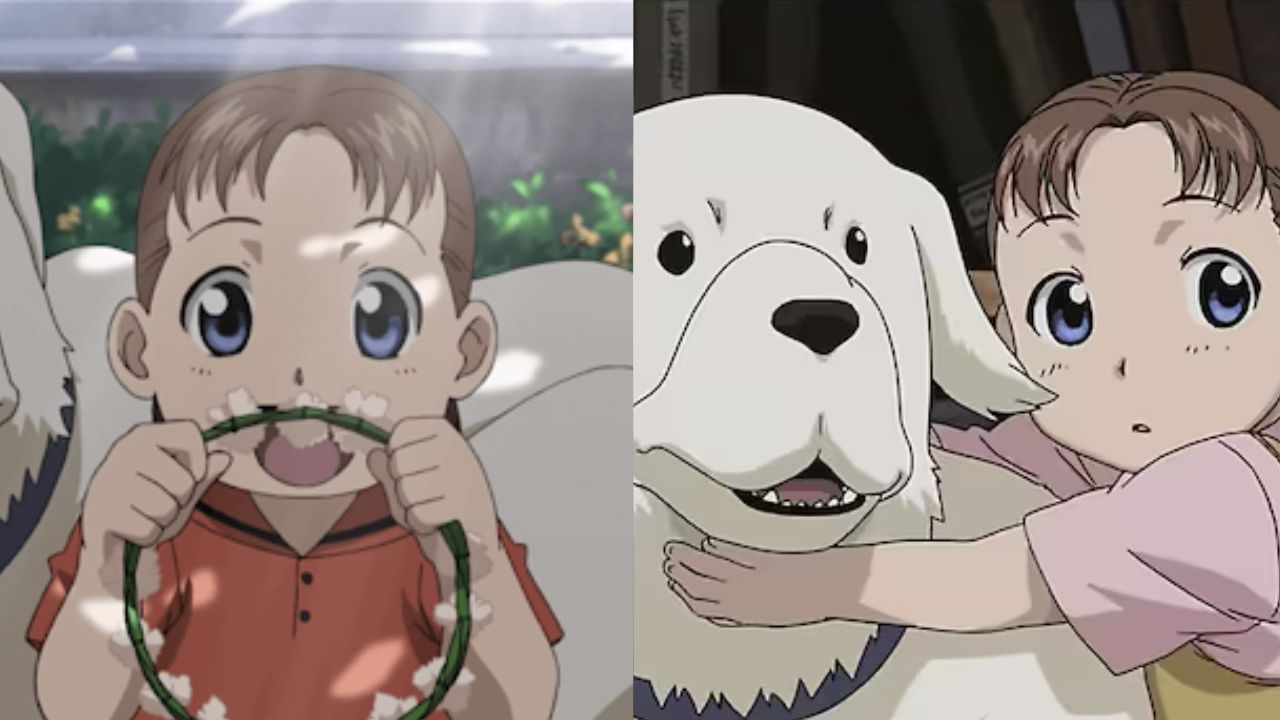
The tragedy of Nina and Alexander is undeniably unforgettable, but it’s also brief. She is introduced and taken away within a few episodes, leaving her little time to leave a lasting impression beyond the shock of her demise.
This brevity limits her depth as a character, making her role feel more like a plot device than an integral part of the story.
Much of the emotional weight surrounding Nina comes from the audience’s reaction to her suffering rather than her own agency in the story.
She is remembered not for her personality or actions but for the horrifying circumstances forced upon her, which diminishes her individuality as a character.
While Nina Tucker’s story is impactful in highlighting the darker themes of Fullmetal Alchemist, her limited role and lack of development make her an overrated character in terms of significance.
She serves as a poignant reminder of the costs of ambition, but her presence in the series is more symbolic than substantial.
16) Hikigaya Hachiman Struggles to Evolve as a Protagonist
Hikigaya Hachiman from My Teen Romantic Comedy SNAFU is a fascinating protagonist, but his status as an iconic character is sometimes overstated.
Known for his sharp wit and cynical worldview, Hachiman stands out from typical high school anime leads. However, his personality, while intriguing at first, can make him feel repetitive over time.
His disdain for social norms and his tendency to isolate himself create a unique dynamic, but they also limit his growth as a character.
Unlike other protagonists who strive for personal development or meaningful change, Hachiman remains largely stuck in his pessimistic outlook.
Much of his arc focuses on his avoidance of emotional vulnerability and his unwillingness to connect with others on a deeper level.
While this aligns with the anime’s themes of flawed communication and relationships, it also means that Hachiman’s growth feels slow and often incomplete.
The series relies heavily on its supporting cast to create conflict and push the story forward.
Characters like Yukino and Yui undergo significant changes throughout the series, providing the emotional core that Hachiman often lacks.
Their struggles to handle their feelings and friendships highlight the personal growth that Hachiman himself avoids confronting.
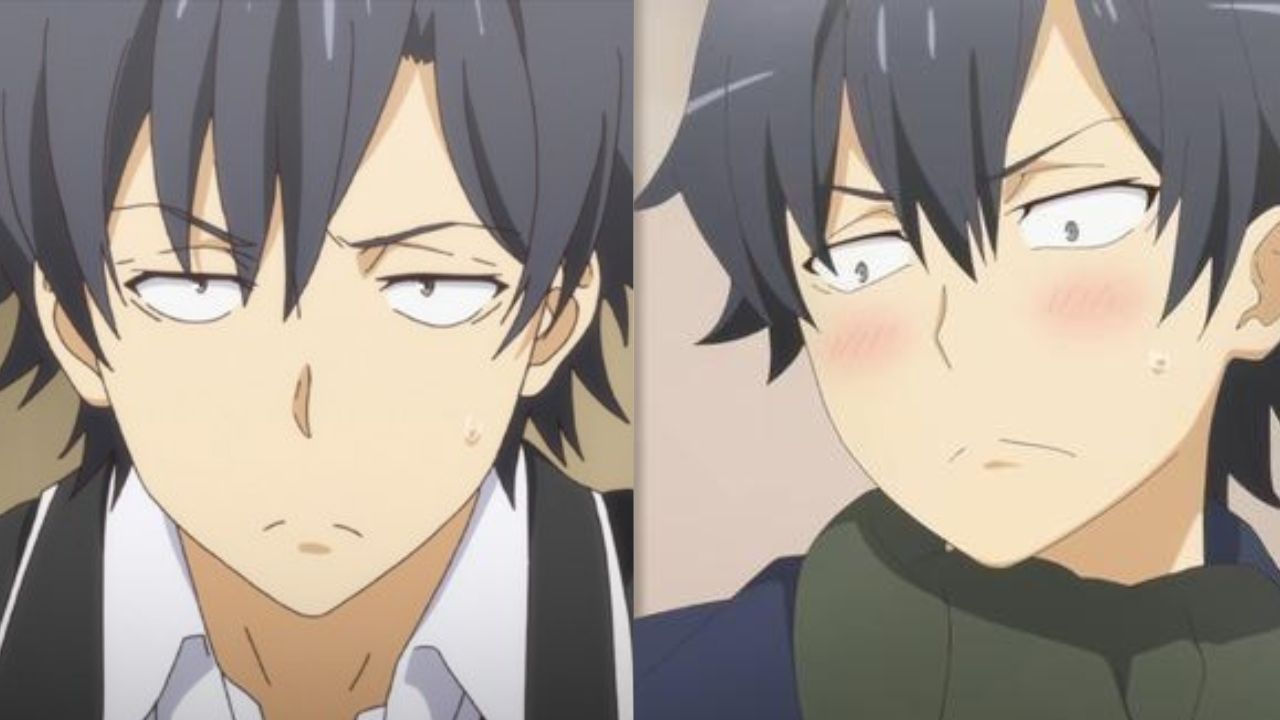
Hachiman’s moments of introspection and his clever analysis of social situations are compelling, but his refusal to open up emotionally limits the impact of these moments.
Instead of evolving, he often reverts to his self-sacrificing tendencies, prioritizing others’ happiness while disregarding his own.
This makes him feel stagnant, even when the story gives him opportunities to grow.
While Hachiman’s sardonic humor and unique perspective make him a memorable protagonist, they also make him a static one.
His cynicism and self-imposed isolation remain consistent throughout much of the series, which can feel frustrating for viewers who want to see him embrace change or face his vulnerabilities head-on.
Ultimately, while Hikigaya Hachiman is a standout character in his genre, his reluctance to grow emotionally and his reliance on supporting characters to drive the story highlight his limitations.
His complexity is undeniable, but his inability to truly change leaves him feeling less dynamic than other iconic anime leads.
17) Why Homura Akemi’s Arc Feels Stuck in Time
Homura Akemi from Puella Magi Madoka Magica is often hailed as one of the most complex characters in anime, but her status as a fan favorite can feel somewhat overrated upon closer inspection.
Her tragic backstory and stoic personality make her appear deep and multi-layered, but as the story progresses, it becomes clear that her development is limited by her constant actions to change the past.
Instead of growing emotionally, Homura remains trapped in a repetitive cycle, which can feel more frustrating than fascinating.
Her obsession with Madoka, while understandable given their shared history, ultimately makes her a reactive character rather than an active one, as her actions are always centered around saving Madoka rather than achieving personal growth.
Homura’s struggle to protect Madoka from the horrors of becoming a magical girl is a major driver of the story.
However, this singular focus on Madoka’s well-being leads to a lack of broader character development for Homura.
She is essentially defined by her desire to stop Madoka from making the same fate-altering decisions, and this leads to a somewhat one-dimensional portrayal of her character.
While her determination and sacrifice are admirable, they also limit her complexity, as her actions are often based on the same repetitive patterns rather than evolving into something new.
Her lack of emotional growth, especially when compared to other characters, makes her feel more like a tool for the story than a fully fleshed-out protagonist.
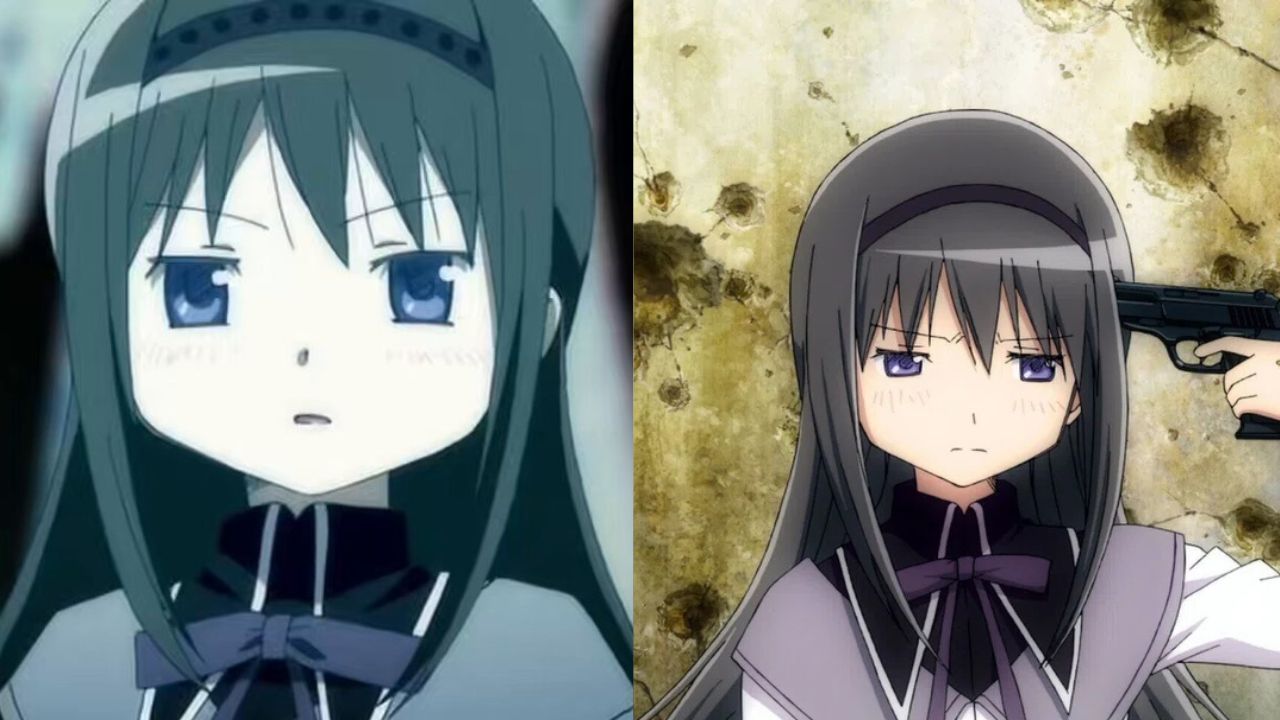
Despite the emotional depth suggested by her backstory, Homura’s character arc often feels stuck. As the anime progresses through different timelines, we see Homura repeatedly making the same choices, trying and failing to change the outcome.
This constant cycle of trying to save Madoka without ever altering her own mindset becomes tiresome.
Rather than growing as a person, Homura becomes more entrenched in her desperation, which makes her seem more like a tragic character caught in a loop than a dynamic individual.
Her inability to break free from her obsession with Madoka results in a lack of meaningful character progression.
Another aspect that contributes to Homura’s overrated status is her portrayal as the tragic heroine.
Her suffering is undoubtedly heartbreaking, and her sacrifices are significant, but this tragic element becomes a central part of her identity.
Instead of exploring more diverse aspects of her personality, the story focuses on her role as the savior of Madoka, which reduces her to a one-note character.
Her tragic backstory is meant to evoke sympathy, but it also limits her potential for growth, making her seem like a character who is defined by loss and obsession rather than her own personal evolution.
Homura’s relationship with Madoka, while central to the story, also contributes to her overhyped status.
Much of her character arc is based on Madoka’s potential transformation into a powerful being, and while her dedication to saving Madoka is noble, it reinforces Homura’s role as a side character in Madoka’s story.
While Homura may be the focal point in terms of her efforts to change fate, Madoka’s journey is the true heart of the series.
Homura’s inability to evolve beyond her role as Madoka’s protector makes her seem less like a full protagonist and more like a tool used to further Madoka’s development.
While Homura Akemi is undeniably a key figure in Puella Magi Madoka Magica, her status as a beloved character can sometimes feel overrated.
Her repetitive struggle to change Madoka’s fate, lack of emotional growth, and limited character arc ultimately prevent her from becoming as dynamic or nuanced as some fans believe.
Despite her tragic backstory and strong dedication, Homura’s inability to break free from her obsession with Madoka leaves her feeling more like a character trapped in a cycle than a fully realized protagonist.
18) Jotaro Kujo Shines Brighter as a Mentor Than a Hero
Jotaro Kujo, the stoic hero of JoJo’s Bizarre Adventure: Stardust Crusaders, is undoubtedly a fan favorite.
His calm demeanor and incredible strength give him an undeniable cool factor, but his status as one of the most iconic JoJos feels a bit overblown.
In Stardust Crusaders, Jotaro’s role as the lead often feels static. While he excels in battles with his strategic mind and immense power, his personality doesn’t leave much room for growth or complexity.
His unshakable composure, while admirable, limits his emotional depth and relatability as a protagonist.
In contrast, supporting characters like Polnareff bring more layers to the story. Polnareff undergoes significant growth, grappling with personal loss and moral dilemmas, which makes his arc more dynamic and emotionally engaging.
This often leaves Jotaro in the background, overshadowed by the vibrant personalities around him.
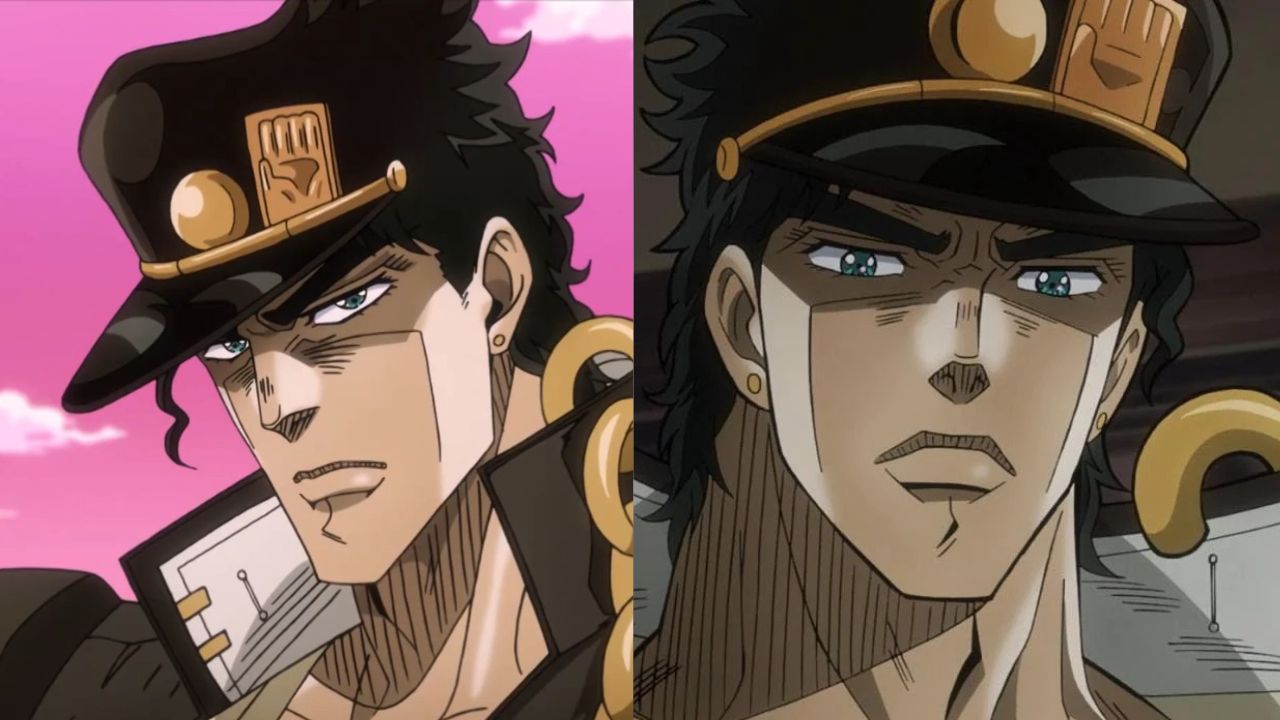
Interestingly, Jotaro’s character shines more in Diamond is Unbreakable, where he plays a supporting role.
As an experienced mentor, his maturity and guidance add depth to the story without needing him to dominate the spotlight. This shift allows his character to feel more well-rounded and impactful.
If Jotaro’s legacy were based solely on Stardust Crusaders, he would be one of the less compelling JoJos.
His role in that part, while important, lacks the nuance and emotional resonance that define truly memorable protagonists. His strength carries the story, but his character arc feels limited.
Jotaro is far from a bad character, but his appeal relies more on his iconic demeanor and strength than on dynamic growth or complexity.
While he remains a standout figure in JoJo’s Bizarre Adventure, his most impactful moments come when he steps out of the lead role, allowing his personality to complement the story rather than define it.
19) Kyouya Ootori’s Unchanging Role in Ouran High School Host Club
Kyouya Ootori from Ouran High School Host Club is often admired for his intellect, charisma, and calm demeanor, but his reputation as a fan-favorite character can feel exaggerated.
While his sharp mind and strategic thinking make him essential to the Host Club’s success, Kyouya’s personality often lacks warmth, making him feel distant and difficult to connect with on a deeper level.
One of Kyouya’s standout traits is his calculating nature. As the Shadow King, he operates behind the scenes, ensuring that the Host Club runs smoothly.
His ability to handle finances, manage events, and anticipate problems highlights his brilliance.
However, this perfectionist attitude sometimes makes him feel more like a functional figure than a relatable character.
Despite his outward confidence, much of Kyouya’s behavior is rooted in his insecurities. Being the youngest son in a powerful family, he feels constant pressure to prove himself.
This drive adds a layer of depth to his character, but it’s rarely explored beyond a few key moments.
His reluctance to openly express vulnerability keeps him from having the same emotional resonance as other members of the Host Club.
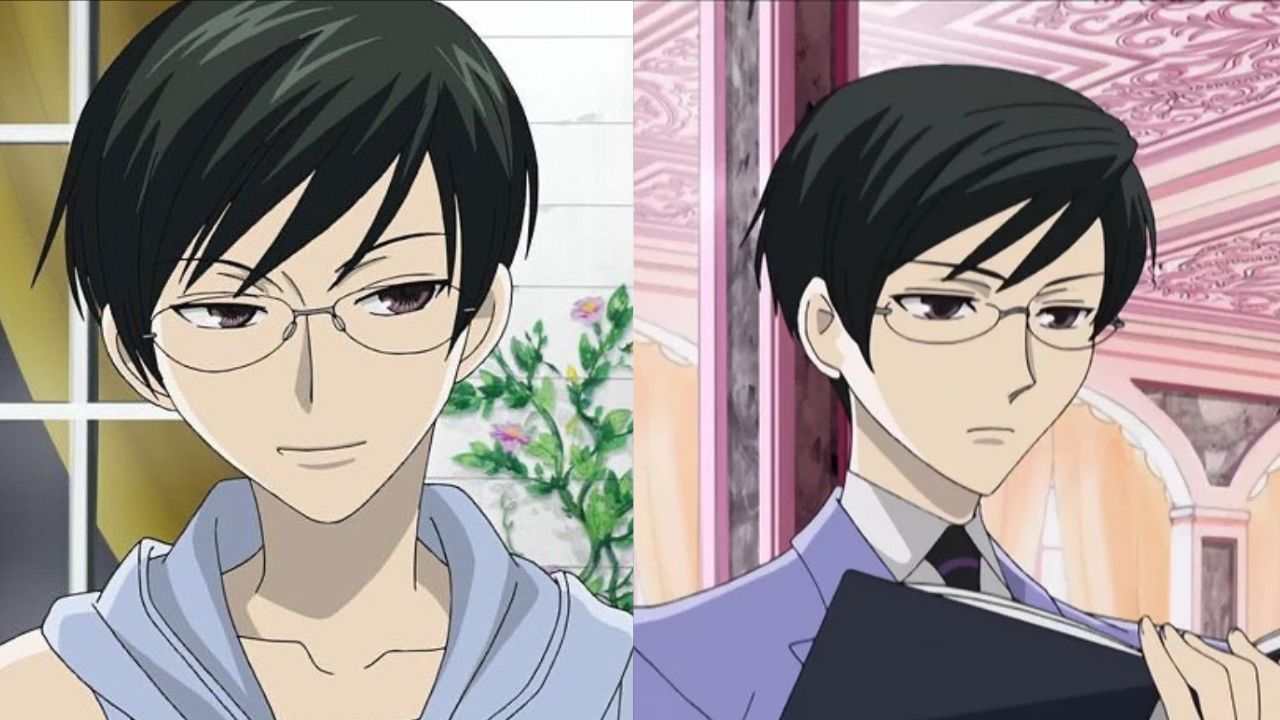
Kyouya’s interactions with the rest of the Host Club can feel formulaic. While he is often the voice of reason or a source of biting humor, his dynamic with the group rarely evolves.
Unlike Tamaki or Haruhi, whose growth is central to the series, Kyouya remains largely the same from start to finish, which limits his development as a character.
Kyouya’s appeal lies in his mysterious and polished persona, but that same quality makes him feel static at times.
He plays his role as the brains of the group flawlessly, but there is little evidence of growth or change in his journey.
While his moments of compassion and wit make him memorable, they are too infrequent to leave a lasting impact.
Kyouya Ootori is a vital part of Ouran High School Host Club, but his lack of meaningful development keeps him from reaching the depth and relatability of other protagonists.
While fans admire his intelligence and composure, his calculated and unchanging nature can make him feel more like a supporting character than a truly dynamic lead.
20) Goku’s Growth and Its Stagnation
Goku is often celebrated as one of the greatest anime heroes, with his incredible strength and cheerful personality earning him a special place in popular culture.
From the beginning of Dragon Ball, Goku’s journey shows genuine growth, as he evolves from a naïve and innocent child into a capable and determined fighter.
This development made him an inspiring character to watch, especially for fans who admired his hard work and dedication to becoming stronger.
As the series continues, however, Goku’s growth begins to stagnate. While he remains a beloved character with his trademark enthusiasm, his development as a person seems to plateau.
He stays true to his cheerful nature, but as the story progresses, his character doesn’t show much deeper growth.
Instead of continuing to mature, Goku stays almost childishly obsessed with fighting and improving his strength, often at the expense of other responsibilities.
One of the reasons Goku has remained so popular over the years is his unshakable determination and upbeat personality.
His infectious enthusiasm for life and battle makes him a character viewers enjoy watching. However, these same traits also lead to some of his shortcomings.
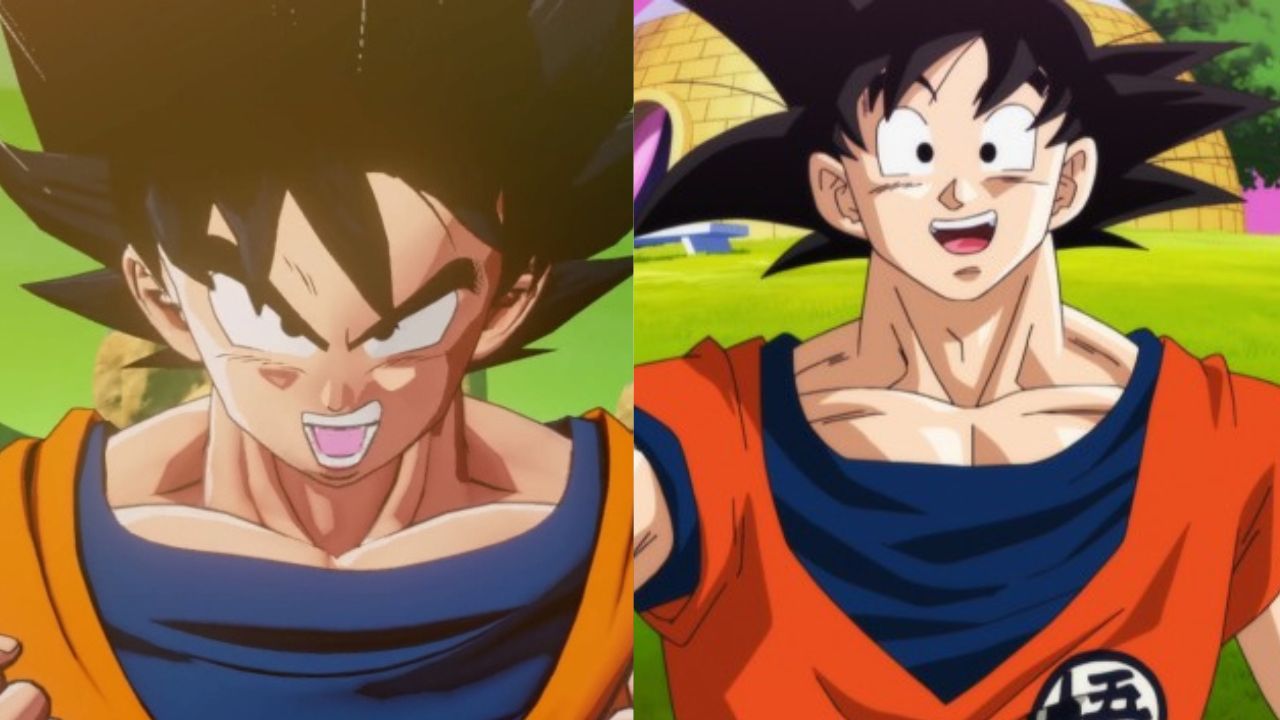
Goku’s focus on training and fighting can seem narrow, often leaving little room for exploring deeper emotional connections or growth in his character.
Though Goku’s passion for fighting and strength is a defining part of his character, it can sometimes feel like it overshadows other aspects of his personality.
His relentless pursuit of battle, especially in later series, often takes priority over important relationships and responsibilities.
This obsession makes him appear more self-centered at times, particularly when compared to other characters who balance their ambitions with a sense of duty.
While Goku’s flaws make him relatable in some ways, they also highlight the limitations of his character arc.
He remains lovable and heroic in his own way, but his unwillingness to evolve beyond his love for battle leaves his character feeling somewhat static.
As the stakes of his battles grow, Goku’s personal development takes a backseat, which diminishes the depth of his character compared to other protagonists who undergo more profound changes.
Despite being a cultural icon, Goku’s lack of emotional growth and his fixation on fighting reveal that even the most legendary heroes are not without their flaws.
His arc, while entertaining, doesn’t explore the same complexities seen in other characters. While fans continue to adore him for his strengths and charm, Goku’s limitations show that even beloved characters can sometimes fall short of their potential.
21) Saber’s Lack of Growth Makes Her Overrated
Saber, one of the most iconic characters in the Fate series, often stands as a symbol of nobility and strength. She’s a skilled warrior with a sense of honor, and her dedication to her ideals makes her a compelling figure.
However, while she’s often praised for these traits, her character can feel somewhat one-dimensional and overrated, especially when compared to other characters in the Fate franchise.
Saber’s stoic demeanor and unwavering loyalty to her mission may seem admirable, but they can also limit her depth.
Throughout Fate/Stay Night, Saber’s character arc doesn’t evolve much beyond her sense of duty and her internal struggle with her past.
She is bound by her role as King Arthur, and her personal desires often take a backseat to her responsibility.
While this can make her appear honorable and noble, it also means that her character lacks the dynamic growth that other protagonists in anime typically undergo.
She’s often trapped in a cycle of self-sacrifice and regret over past decisions, without breaking free from the confines of her established persona.
Saber’s interactions with other characters, especially Shirou, highlight her loyalty and protective nature, but they can sometimes feel repetitive.
While her role as a protector is central to her character, this can overshadow any meaningful development she might experience.
Her relationship with Shirou is often framed around her desire to guide him and her internal conflict over her own past, which, while important, can also feel static as the series progresses.
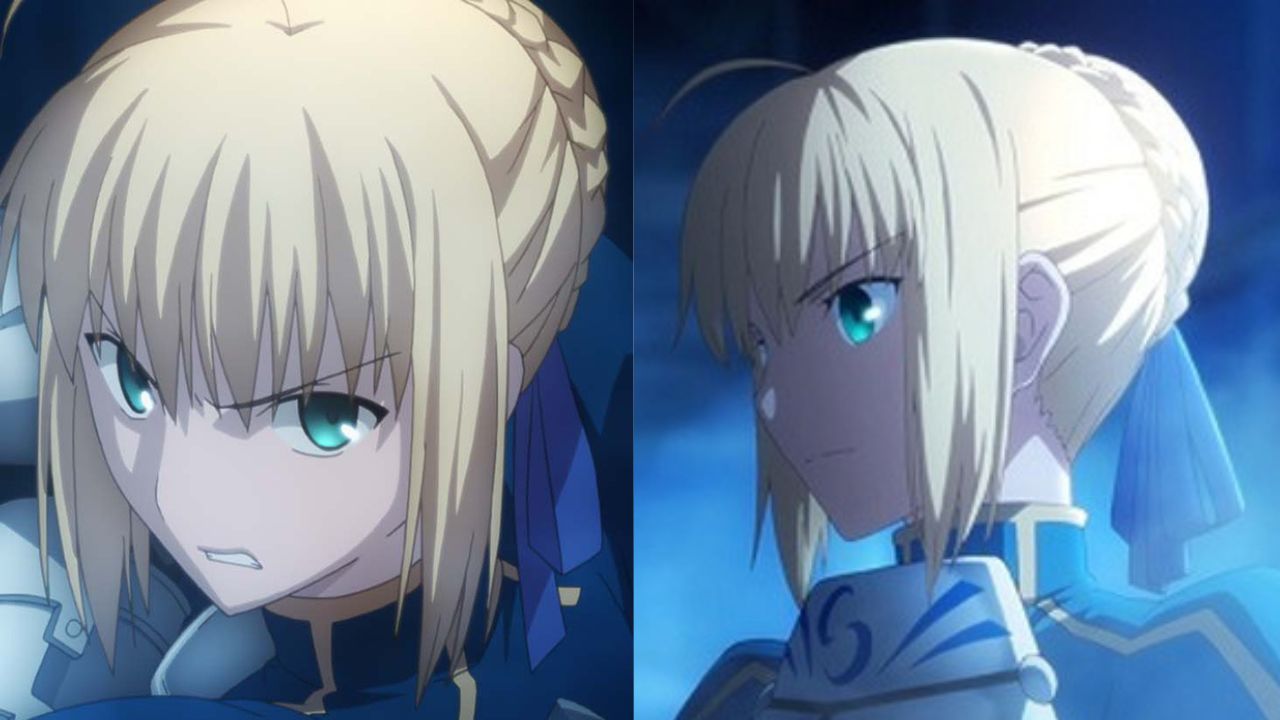
In many ways, Saber remains more of a symbolic figure rather than a fully realized, evolving character.
One of the biggest drawbacks of Saber’s character is how little she changes over the course of Fate/Stay Night.
Her arc is largely defined by her struggle to reconcile her past as a ruler with her present role as a servant in the Holy Grail War.
While this struggle is central to her character, it doesn’t provide the kind of substantial growth that many viewers expect from a protagonist.
Instead, she often seems like a placeholder for the plot’s bigger themes, rather than a character who truly develops through her experiences.
While Saber’s strength and combat skills are certainly impressive, they sometimes feel like the most defining aspects of her character.
Her incredible abilities are highlighted throughout the series, but they often serve as a way to raise the action and drama rather than deepen her character.
Saber’s combat prowess is important, but it can also make her feel somewhat detached from the emotional core of the story.
Her lack of significant vulnerability or personal conflict beyond her past makes it hard for viewers to fully connect with her as a dynamic character.
Saber’s status as one of Fate/Stay Night’s most beloved characters can feel overblown when you examine her role more closely.
She embodies the archetype of a strong, noble hero, but her character’s lack of growth and reliance on her past can make her feel repetitive and less compelling than other protagonists in the series.
While she is undeniably iconic and has moments of depth, her arc and character development often feel limited, making her overrated in comparison to other more complex and evolving characters in anime.
22) Yusuke Urameshi’s Toughness Can’t Hide His Lack of Growth
Yusuke Urameshi from Yu Yu Hakusho is often regarded as one of the iconic protagonists in anime, but a closer look reveals that his popularity might be somewhat overstated.
At first glance, he seems like the perfect blend of tough, rebellious, and good-hearted, but beneath his attitude lies a character who frequently relies on brute force and luck rather than growth or strategy.
His journey begins with a dramatic sacrifice, and while this sets up an interesting premise, much of his development throughout the series seems to repeat the same patterns.
Throughout Yu Yu Hakusho, Yusuke’s character development is mostly defined by his relationships with others and his increasing strength.
In the early episodes, his growth feels grounded in his transformation from a delinquent to a more responsible and heroic figure.
However, his constant reliance on sheer power to solve problems becomes a key limitation.
Instead of evolving into a more complex character, Yusuke often finds himself in situations where his raw strength and resolve are the primary solutions.
This gives him little room for personal growth, especially compared to other protagonists who undergo deep emotional and intellectual transformations.
One of the main aspects that makes Yusuke’s character overrated is his lack of internal conflict.
While other characters around him, such as Kuwabara or Kurama, face genuine struggles and moral dilemmas, Yusuke seems relatively unaffected by the consequences of his actions.
He acts impulsively and fights because he can, without much consideration for the long-term impact.
While this may add to his charm for some, it also makes him seem more like a passive participant in the story rather than an active, evolving protagonist.
Yusuke’s relationships with other characters also contribute to the impression that he’s overrated.
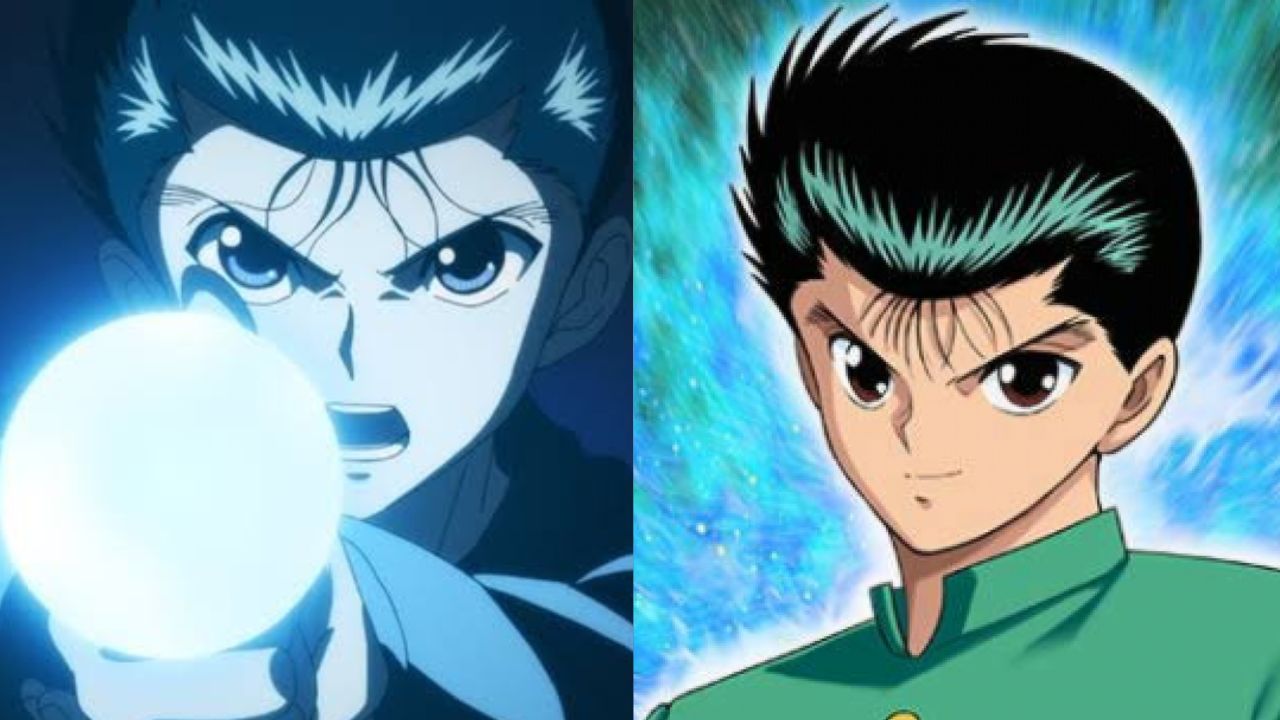
His dynamic with friends like Kuwabara or even his mentor, Genkai, often steals the spotlight, with his role in these relationships being more about reacting to others than truly developing alongside them.
The friendships he forms are heartwarming, but they sometimes overshadow his own personal journey.
He rarely faces challenges that force him to deeply reflect or question his actions. Instead, the series focuses more on his physical confrontations, with Yusuke’s responses being more reactionary than transformative.
Another reason why Yusuke can feel overrated is that he doesn’t face many significant losses that alter the course of his character.
In many other shonen anime, protagonists face setbacks or failures that shape their growth.
For example, characters like Naruto or Goku endure hardships that push them to grow stronger not just in terms of power, but emotionally and mentally.
Yusuke, however, seems to brush off challenges, and his victories, while hard-earned, don’t carry as much weight in the context of his personal evolution.
Lastly, Yusuke’s invincibility and confidence ultimately contribute to his stagnation.
While Saitama from One Punch Man is intentionally designed to be invincible for comedic effect, Yusuke’s unyielding strength and confidence in battle do little to enhance his character depth.
His victories, while satisfying in the moment, don’t serve to progress his internal development.
Rather than facing obstacles that require him to question his abilities or grow beyond his current self, Yusuke remains a constant force of nature, which ultimately makes him feel more like a static character than a dynamic one.
Yusuke Urameshi’s place in anime history is deserved, but his status as a fan favorite is often based more on his surface-level appeal than on substantial character development.
His toughness and rebellion make him an interesting figure, but his overreliance on physical strength, lack of deep introspection, and failure to undergo significant personal growth prevent him from being as remarkable as other protagonists who undergo more intricate, evolving arcs.
23) Ash Ketchum’s Journey Feels Like It’s Going Nowhere
Ash Ketchum from Pokémon is one of the most recognizable anime characters of all time, but his legendary status as a protagonist is often overstated.
As the face of a global franchise, Ash’s journey is less about personal growth and more about marketing longevity, which limits his depth as a character.
While his cheerful personality and determination are inspiring, they rarely evolve in meaningful ways.
One of Ash’s biggest flaws as a protagonist is his lack of significant progression. Despite his years of travel and countless battles, he remains perpetually inexperienced, often repeating basic mistakes.
His development resets with each new region, making it difficult to see any long-term growth.
This repetitive cycle can frustrate viewers who hope to see Ash truly mature as a trainer and person.
Ash’s relationships with his Pokémon and companions are a key part of his charm, but even these connections feel shallow at times.
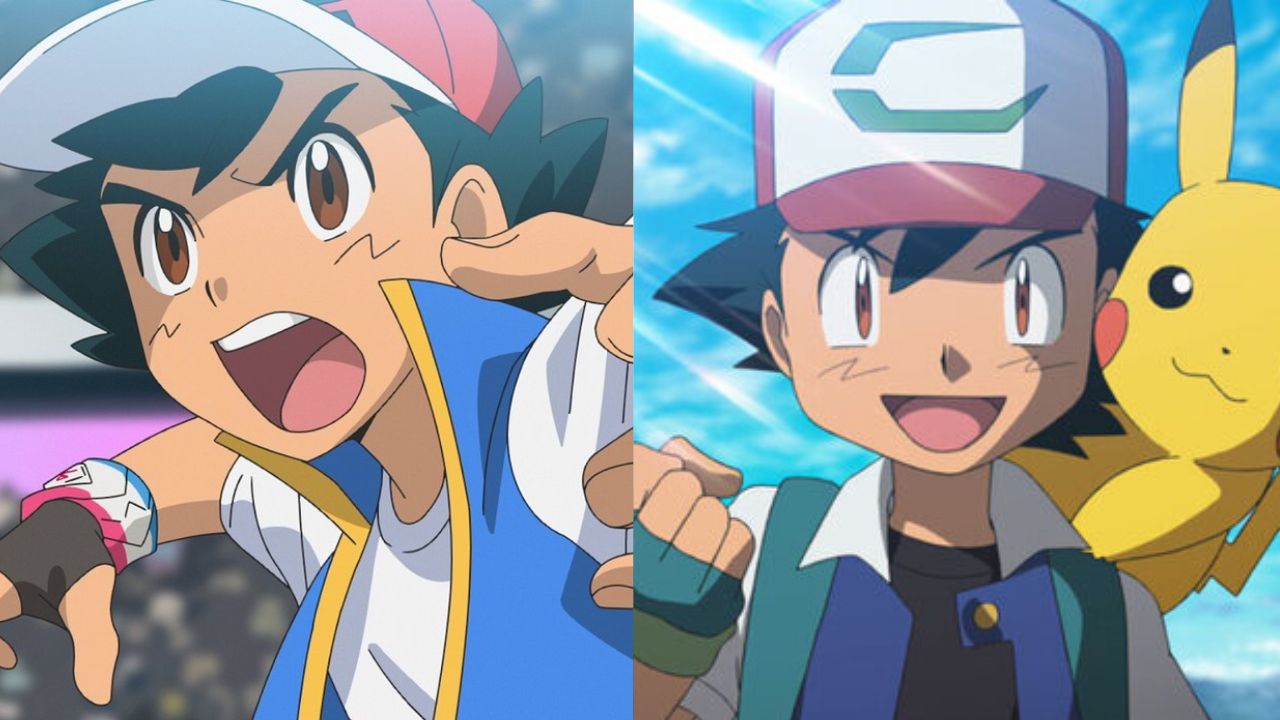
While he forms bonds with his team, the emotional weight of those relationships is often overshadowed by the anime’s episodic nature.
His rotating cast of companions also means that deeper friendships are rarely explored over the long term, making his interactions feel formulaic.
Another issue is Ash’s constant plot armor. His victories in battles often rely more on luck or the power of friendship than on strategy or skill.
While this fits the themes of Pokémon, it undermines his credibility as a trainer. Fans might root for him, but his success rarely feels earned, which can make his journey less compelling compared to other anime heroes who grow through genuine hardships.
Additionally, Ash’s static character undermines the stakes of his adventures. No matter how many defeats he suffers or how many times he faces challenges, he never seems to truly reflect or change.
His unwavering optimism is admirable, but it comes at the cost of deeper emotional complexity. This lack of evolution makes it hard for him to resonate as a dynamic protagonist.
While Ash Ketchum is undeniably iconic, his endless journey and lack of growth limit his appeal as a character. He serves more as a symbol of the Pokémon brand than as a truly compelling lead.
For all his enthusiasm and determination, Ash remains stuck in a cycle of repetition, which prevents him from being as remarkable as his fame suggests.
24) Yugi Muto A Passive Protagonist in a Supernatural World
Yugi Muto from Yu-Gi-Oh! is often seen as a beloved and iconic character in the anime world, but his popularity can sometimes feel exaggerated.
As the main protagonist, he is portrayed as a kind and compassionate boy, always ready to help others.
His pure heart and determination make him relatable, but his constant reliance on his alter ego, Yami Yugi, can make him seem less dynamic.
The series heavily revolves around Yugi’s bond with the spirit of the Millennium Puzzle, and it is this relationship that drives much of the plot.
However, Yugi’s growth often takes a backseat to Yami Yugi’s power and charisma, making him feel less like a fully developed protagonist and more like a vessel for another character’s story.
One of Yugi’s most notable qualities is his ability to solve difficult puzzles and his innate strategic mind, especially in duels.
However, much of his success comes from the overwhelming power of Yami Yugi, who takes control in intense situations.
This reliance on his alter ego detracts from Yugi’s personal growth and limits his role as the main hero of the series.
Instead of growing through his own abilities, Yugi’s character arc largely revolves around learning how to manage the relationship with the spirit inside him, leaving him with little room for independent development.
While Yugi’s heart is in the right place, his victories often feel hollow because they depend on Yami Yugi’s intervention.
This creates a situation where Yugi’s own talents are frequently overshadowed, and he is often seen as a passive participant in his own journey.
As a result, he sometimes comes across as more of a sidekick than a fully realized protagonist.
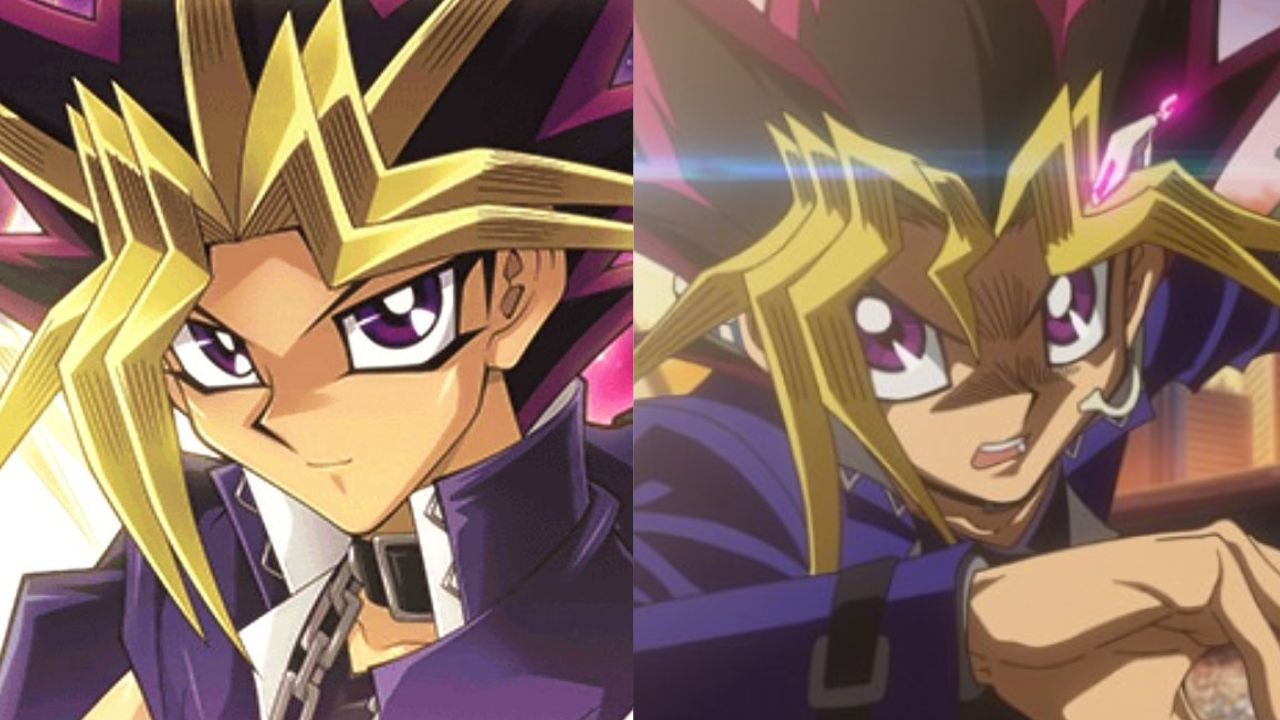
His struggles with his identity and the spirit inside him do provide some depth, but these moments can feel repetitive, as Yugi rarely makes significant strides toward personal growth on his own.
In comparison to other anime protagonists, Yugi’s journey is heavily tied to the supernatural aspects of the Millennium Puzzle.
His connection to Yami Yugi makes him an interesting character, but it also limits his ability to stand alone.
Unlike other heroes who face challenges that push them to become stronger, Yugi’s main struggle is internal, dealing with his relationship with the spirit.
This focus on a mystical bond rather than Yugi’s own journey can make him seem less relatable to viewers looking for a more traditional hero arc.
As the series progresses, Yugi does experience moments of personal growth, but they often feel minor compared to the major changes seen in other characters.
His reliance on Yami Yugi and his strategic mind are impressive, but they don’t fully compensate for his lack of independent development.
While Yugi’s ability to form strong friendships and his sense of justice are admirable, these qualities don’t do enough to raise him beyond the status of a passive protagonist who depends on the strength of others.
Yugi Muto’s character can be seen as overrated when compared to other anime leads who undergo more significant development and face more substantial challenges.
His constant need for support from Yami Yugi and the lack of a truly independent journey make him a less compelling protagonist.
Though he remains an important character in Yu-Gi-Oh!, his reliance on outside forces and lack of personal growth at times leave him feeling more like a plot device than a fully realized hero.
25) Meliodas The Overpowered Hero Who Lacks Complexity
Meliodas, the main character of The Seven Deadly Sins, is often celebrated for his strength, charm, and leadership.
However, his popularity as a protagonist can feel overstated when you examine his character more closely.
While he has moments of depth, Meliodas struggles with a lack of growth and relies heavily on his status as an overpowered hero.
From the beginning, Meliodas is portrayed as nearly invincible. His immense power often allows him to overcome enemies with ease, which reduces the tension in many battles.
Unlike other protagonists who need to train or struggle to surpass their limits, Meliodas rarely faces challenges that truly test him. This makes his victories feel predictable and less impactful.
While Meliodas does have a deeper backstory involving his cursed relationship with Elizabeth, this aspect of his character is often overshadowed by his overpowered nature.
The curse itself is compelling, as it adds an emotional layer to his journey. However, the resolution of this conflict often feels rushed or overshadowed by the anime’s emphasis on flashy battles and over-the-top power displays.
Much of the anime’s excitement comes from the other characters and their struggles.
The members of the Seven Deadly Sins each have their own unique arcs and challenges, which often feel more dynamic than Meliodas’s story.
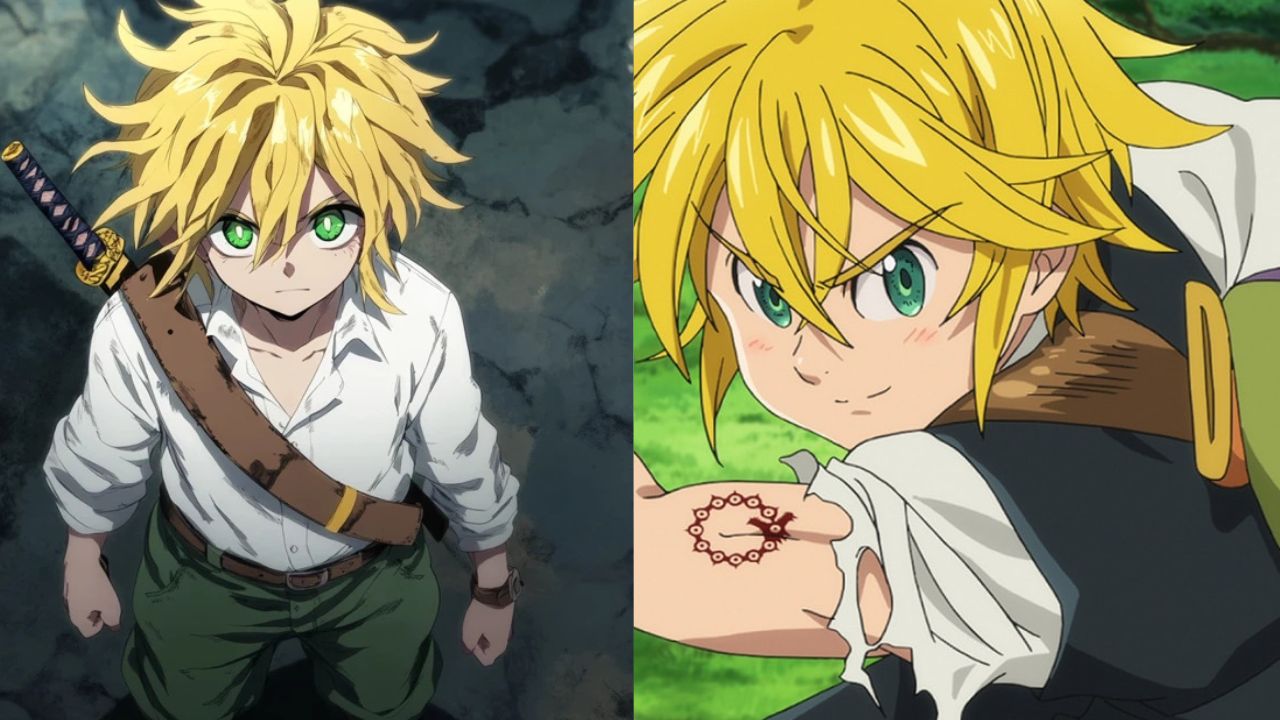
Characters like Ban and King go through meaningful growth, making their journeys more engaging. In contrast, Meliodas’s development often feels stagnant by comparison.
Meliodas’s personality is another source of mixed feelings. While his playful and flirty demeanor adds humor to the series, it can sometimes feel repetitive or one-dimensional.
Moments of emotional vulnerability do exist, but they are infrequent and often overshadowed by his usual carefree attitude.
This lack of complexity makes it harder for some viewers to connect with him on a deeper level.
Although Meliodas is undeniably strong and entertaining at times, his lack of significant growth and reliance on his overpowered abilities make him less compelling as a protagonist.
While the series thrives on its vibrant cast and exciting battles, Meliodas often feels like a static character in a dynamic world.
His charm and backstory can’t fully make up for the missed opportunities to explore his potential more deeply.

